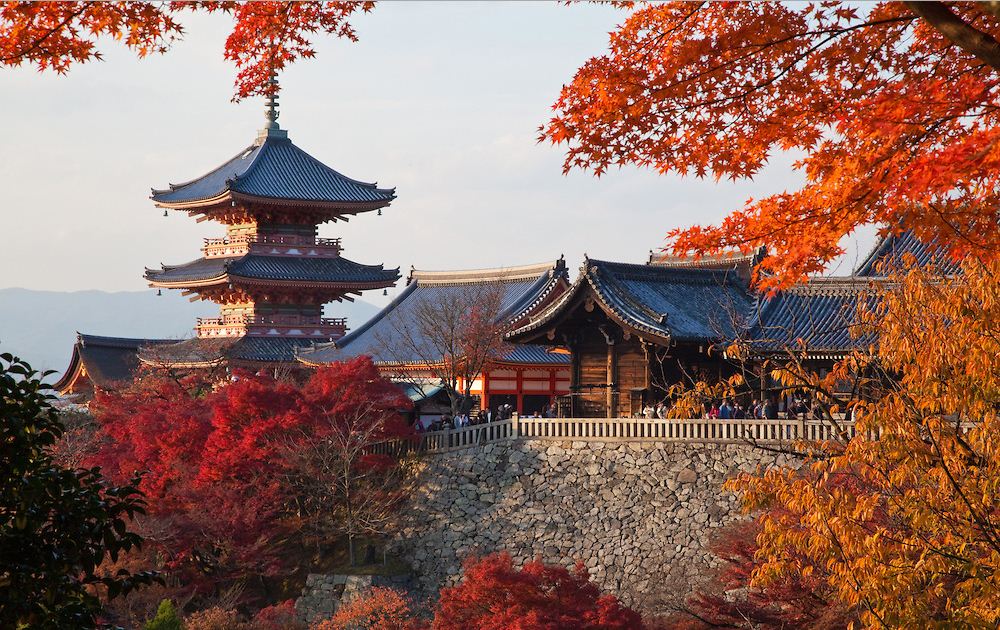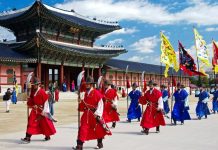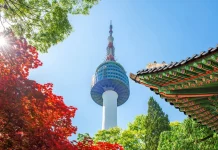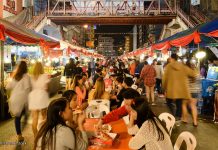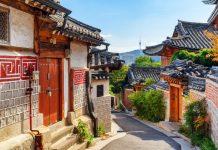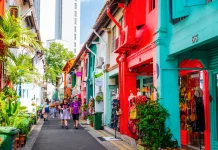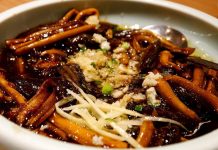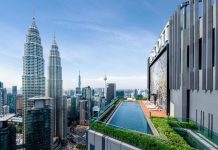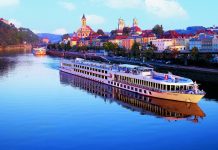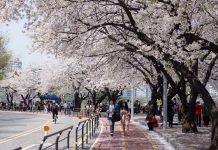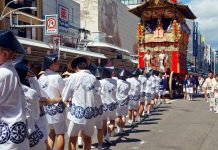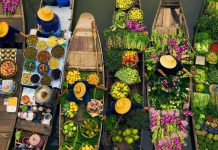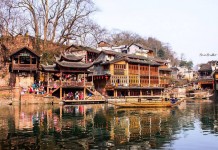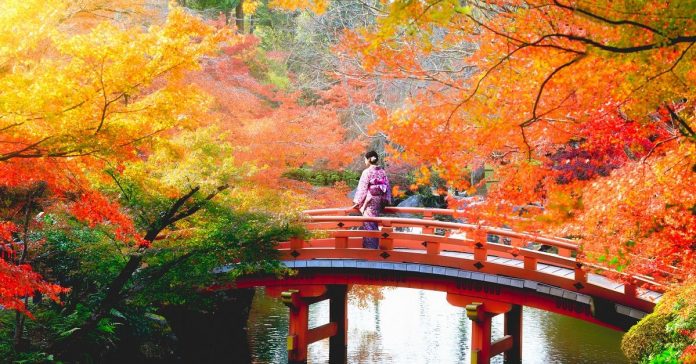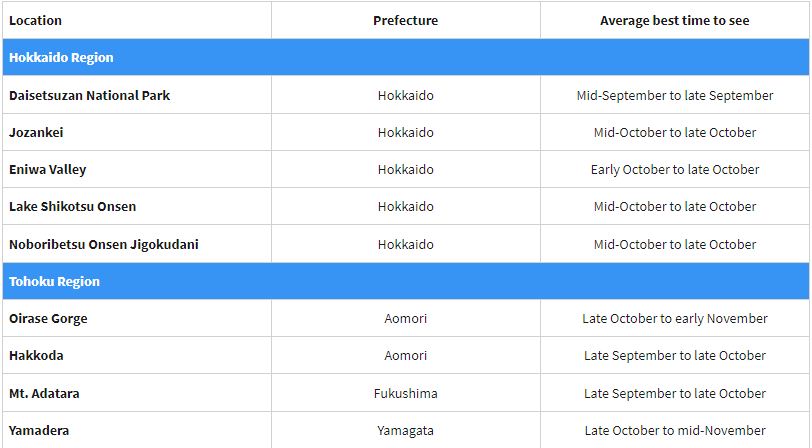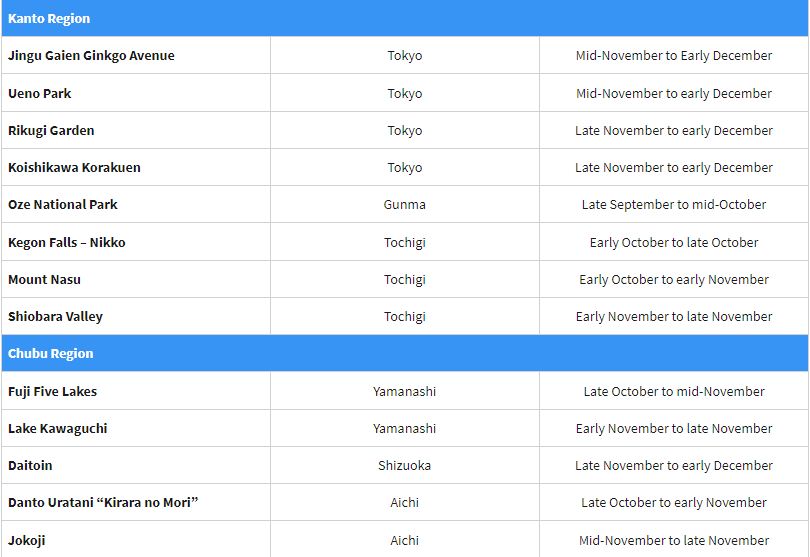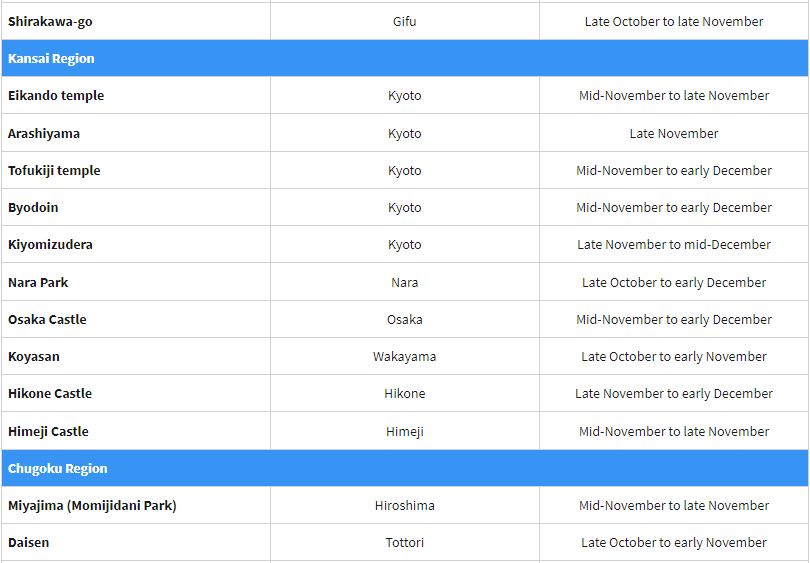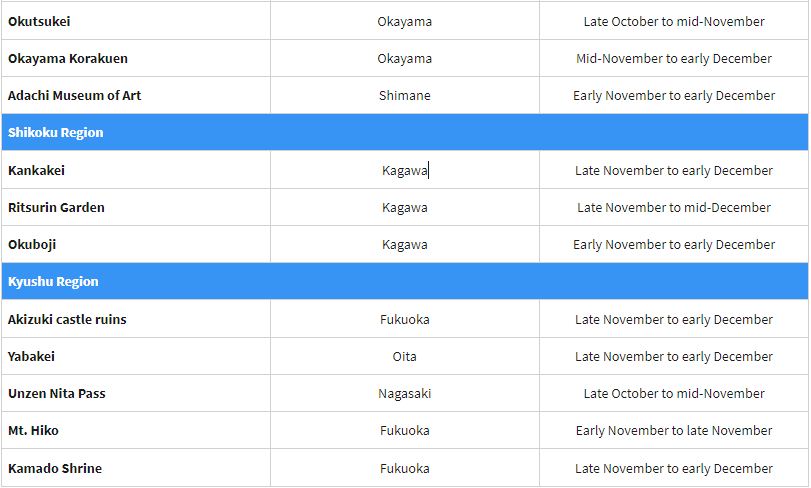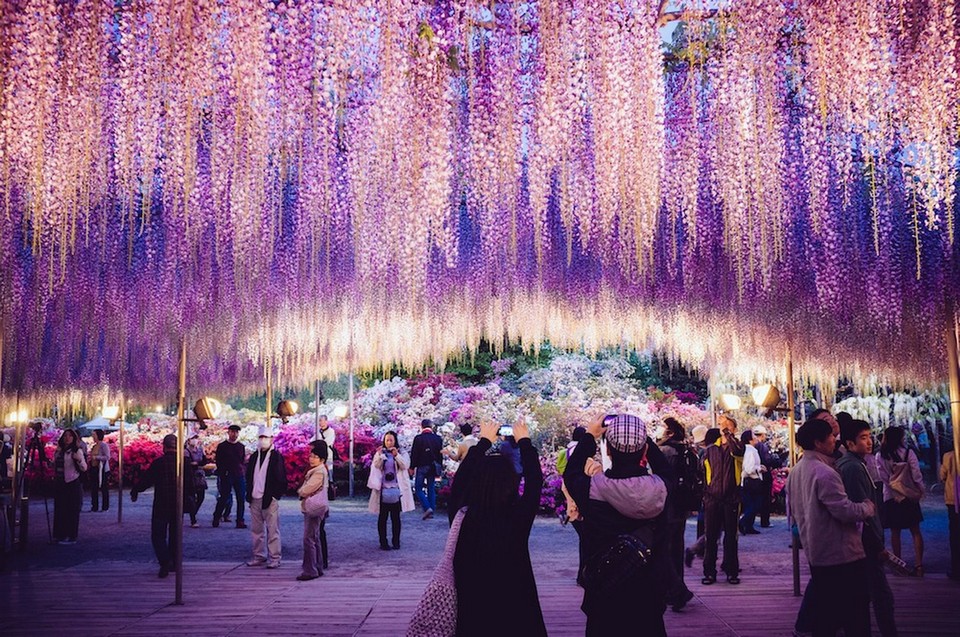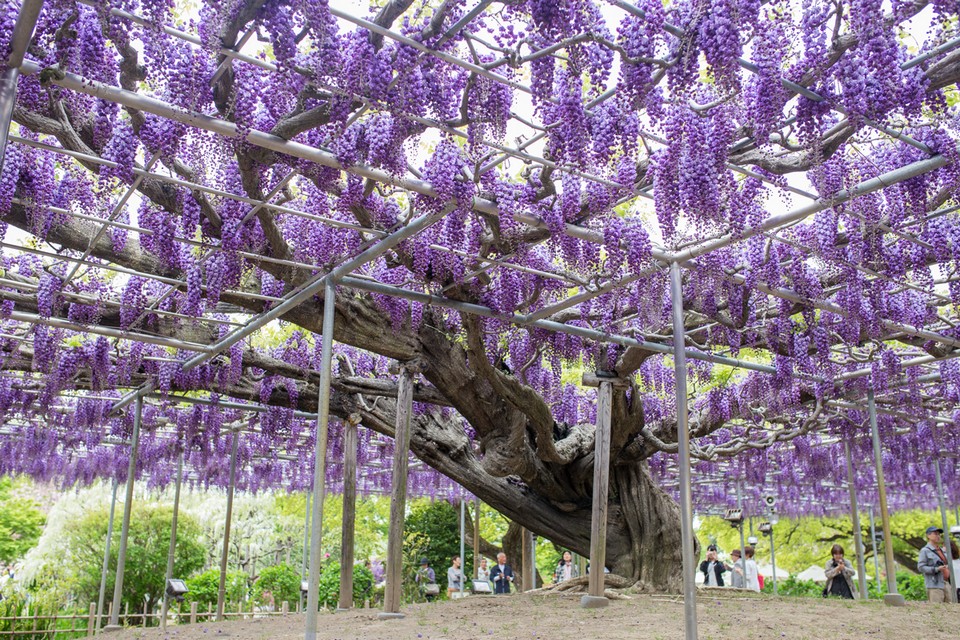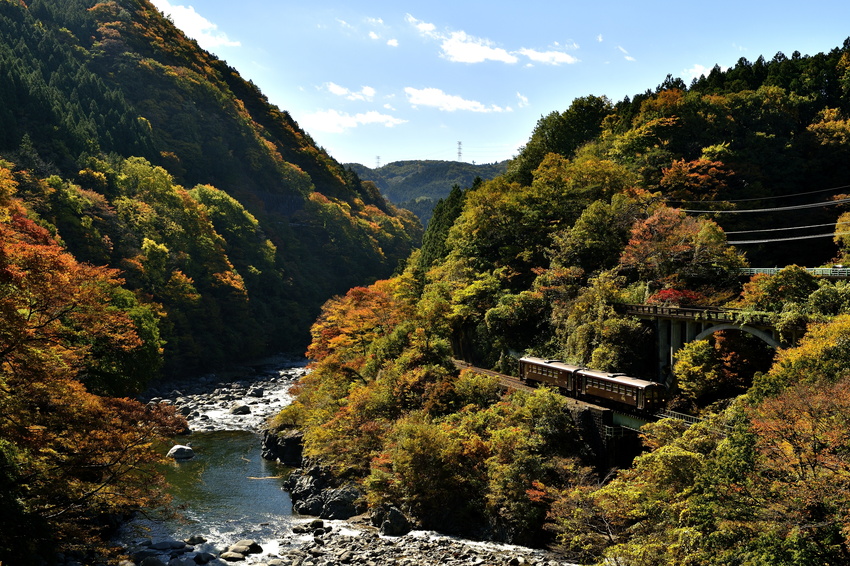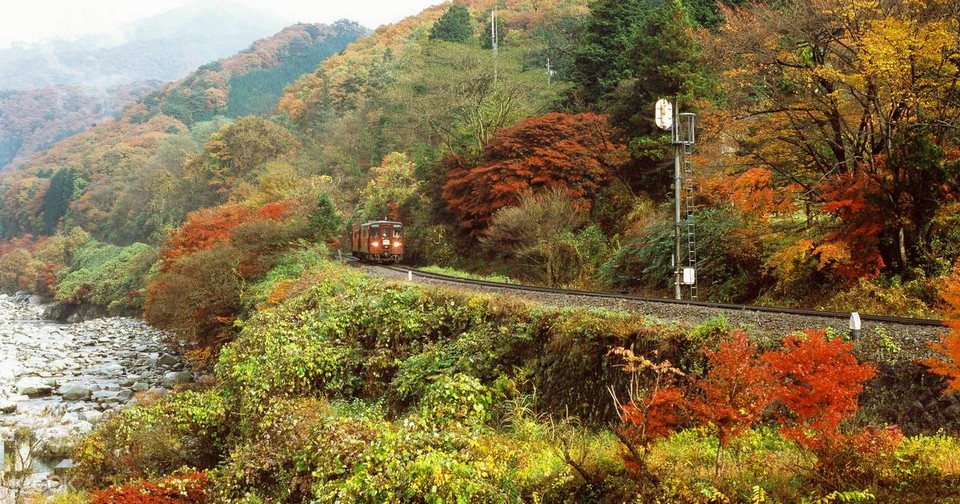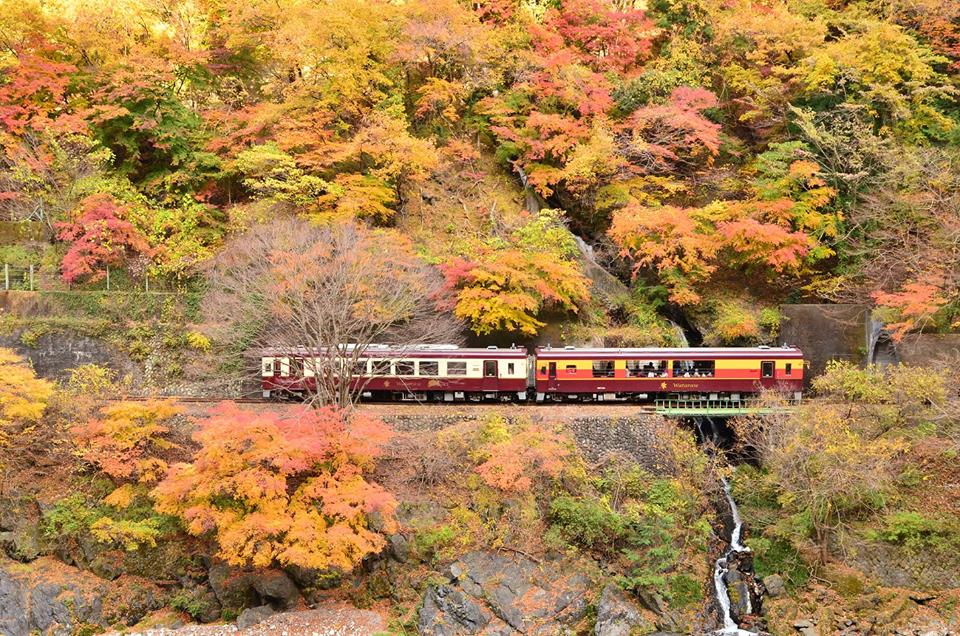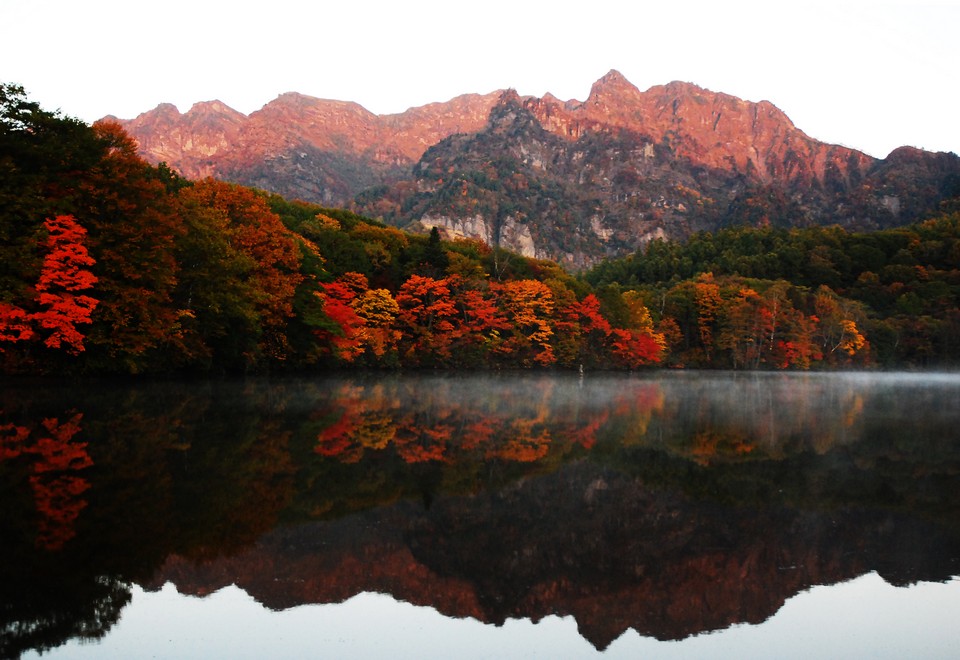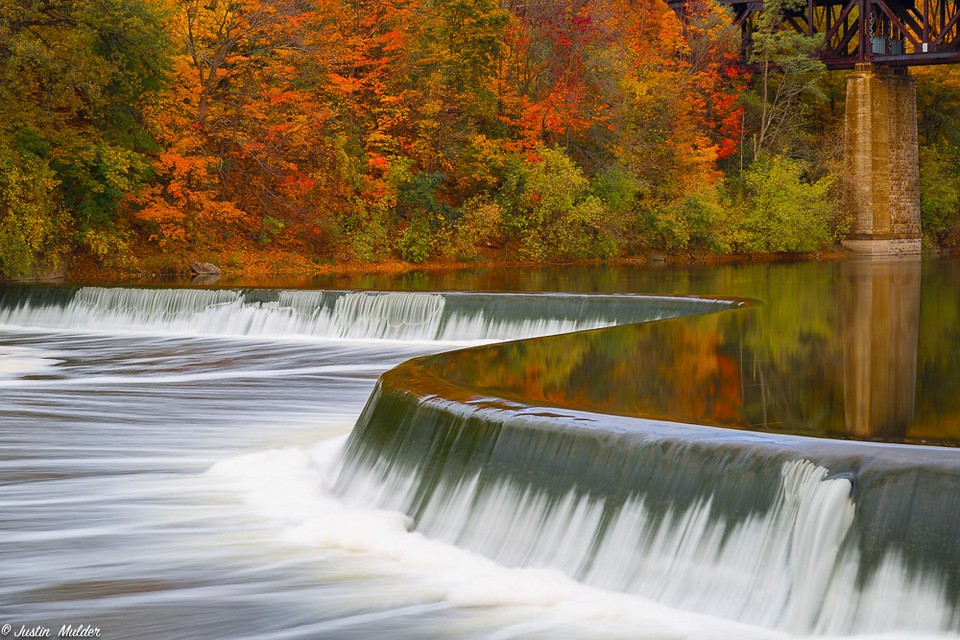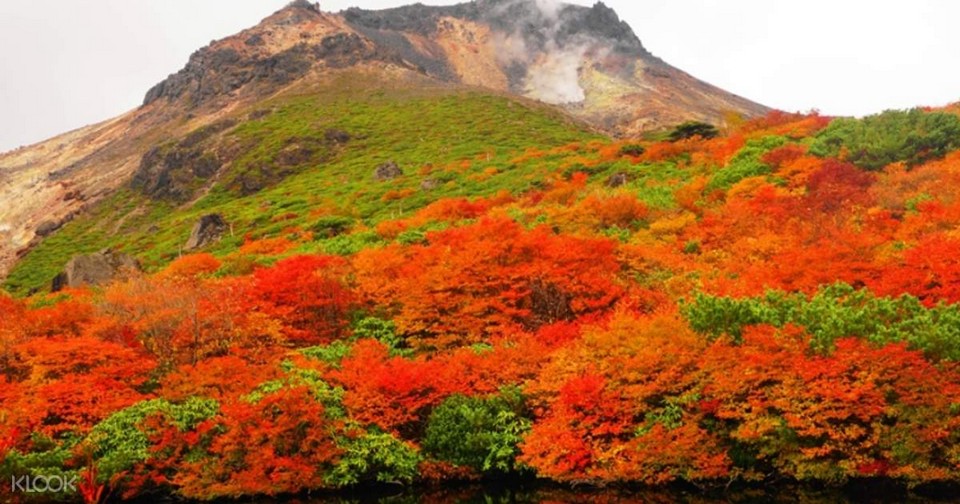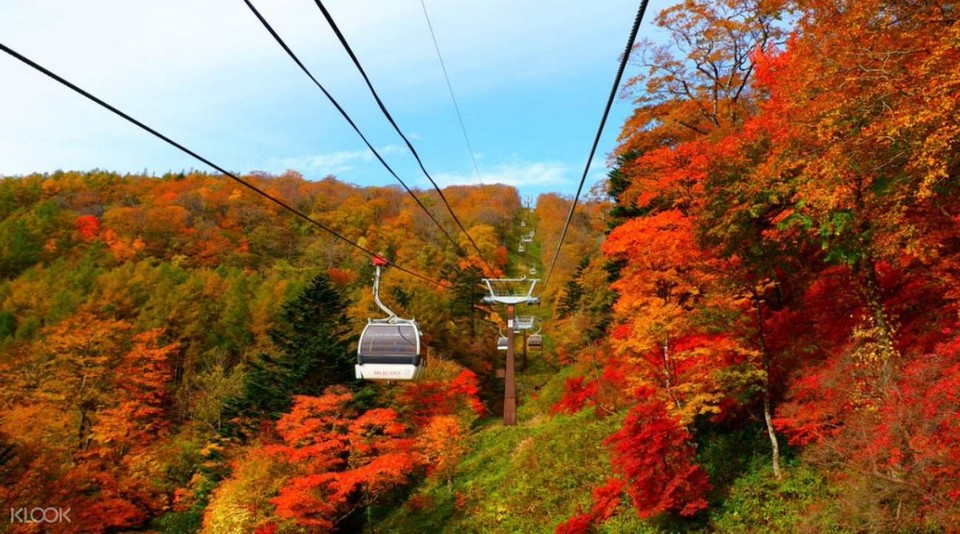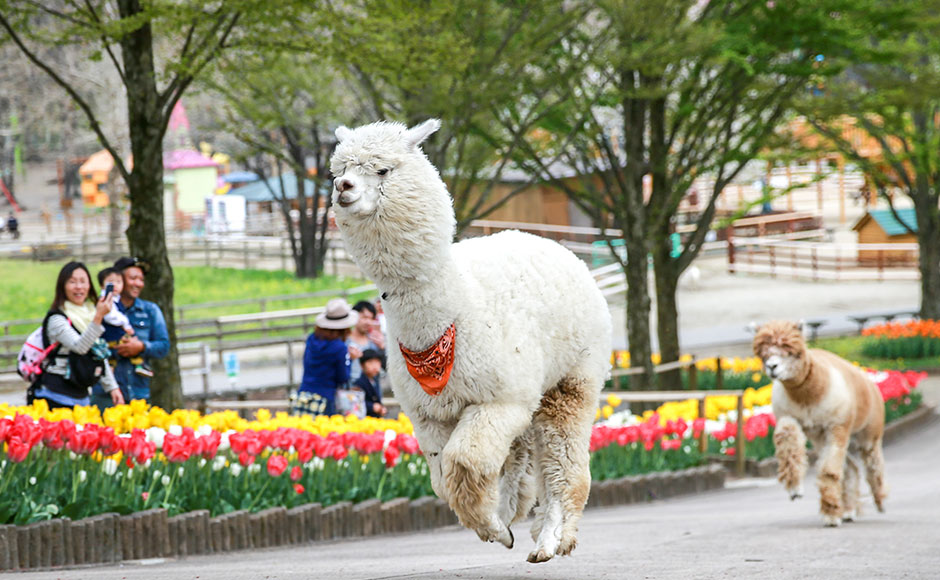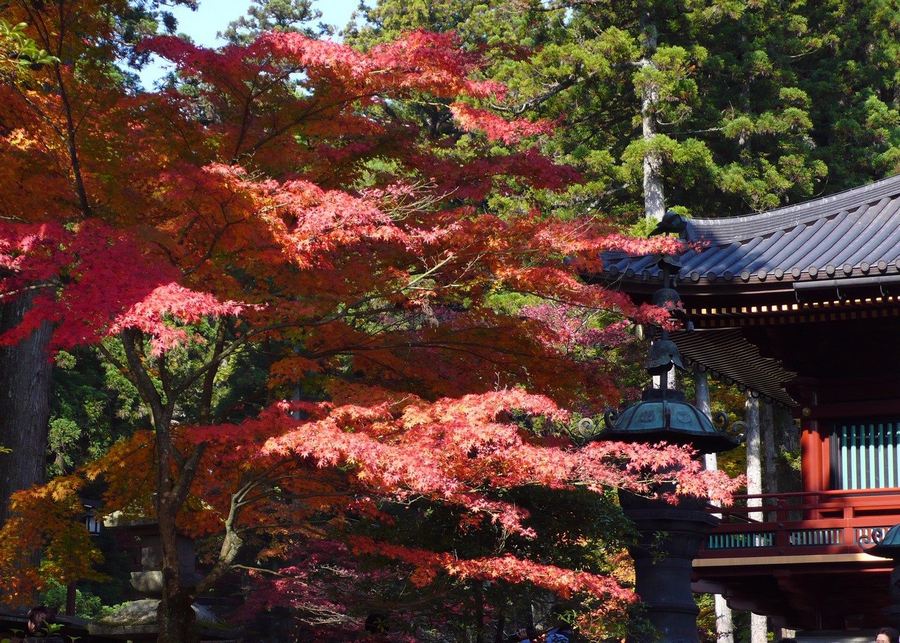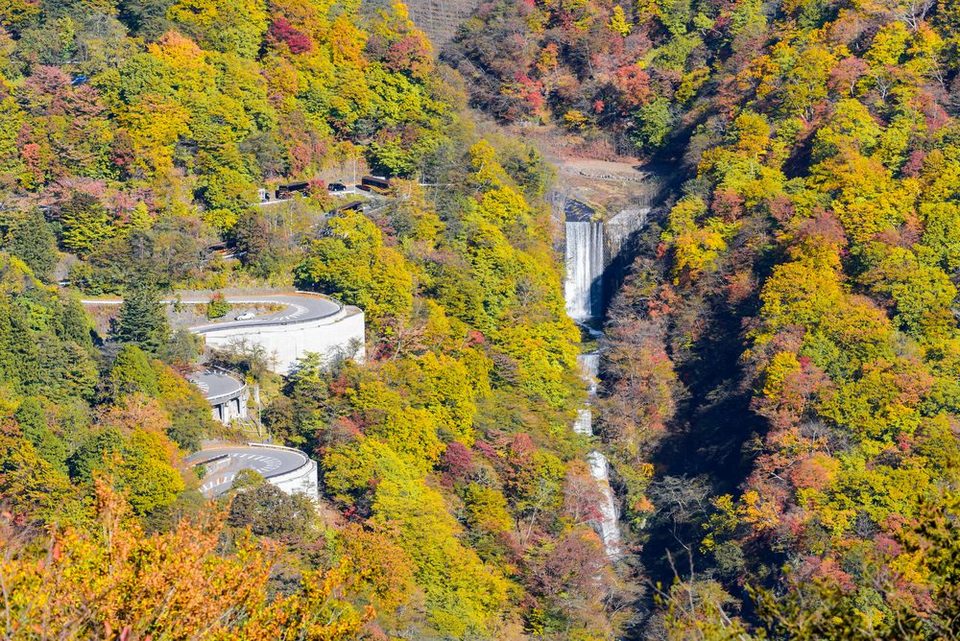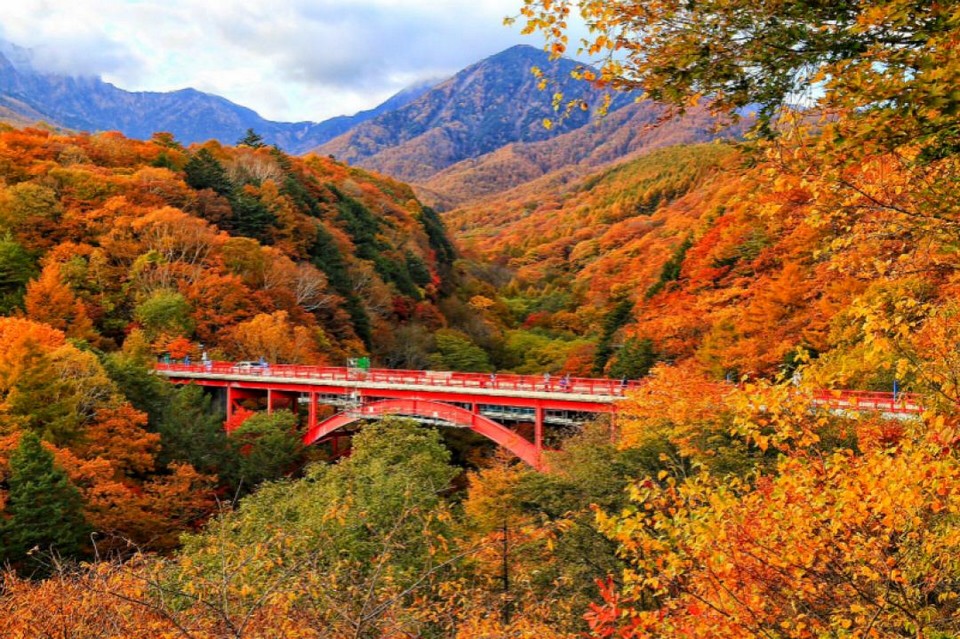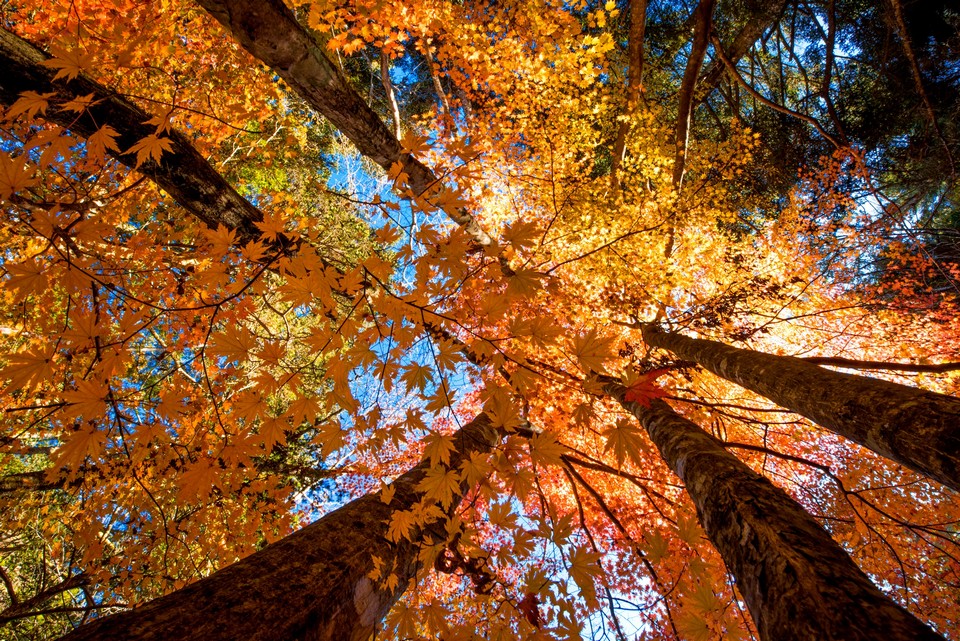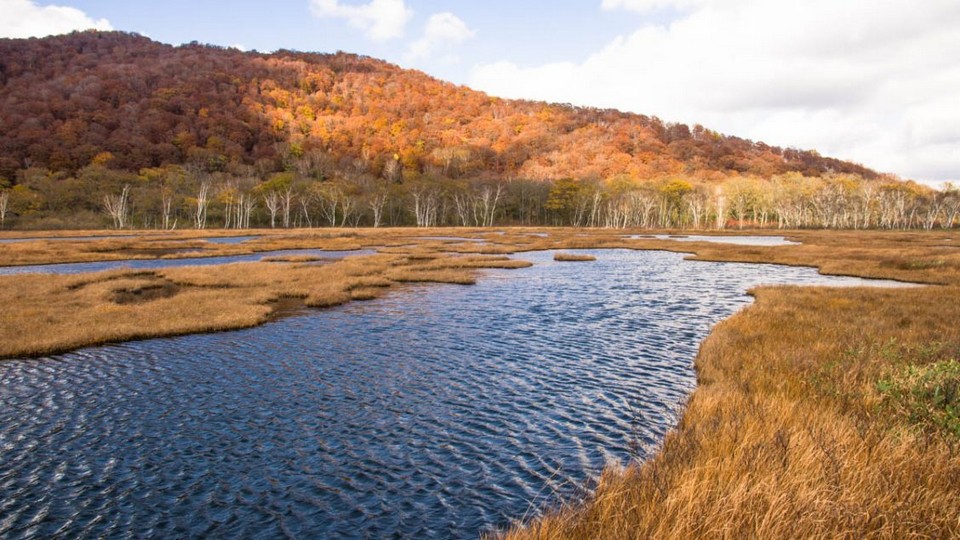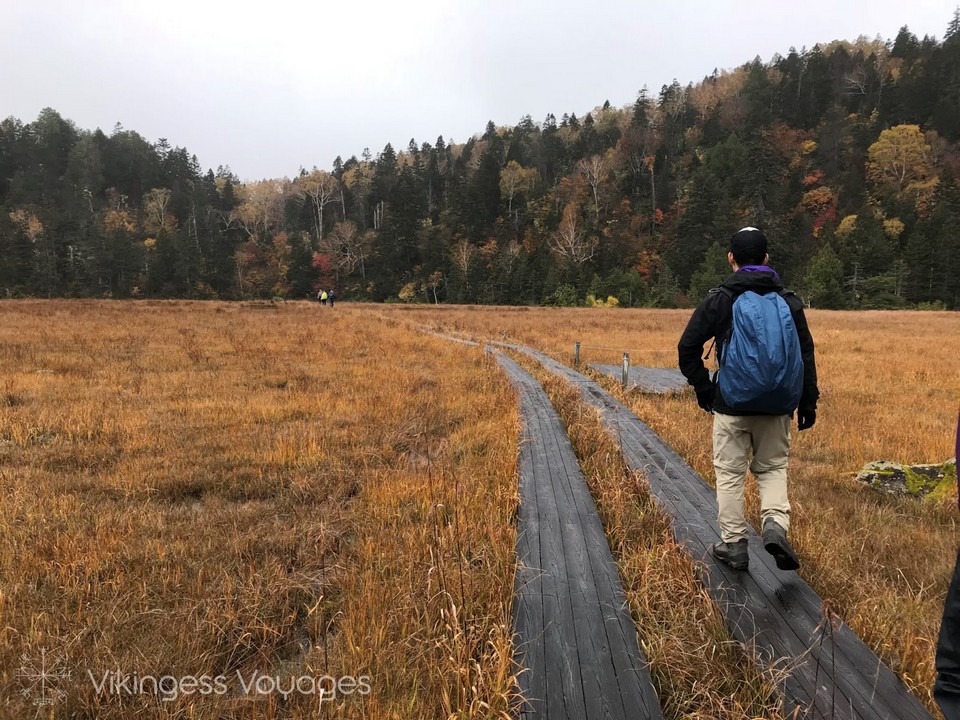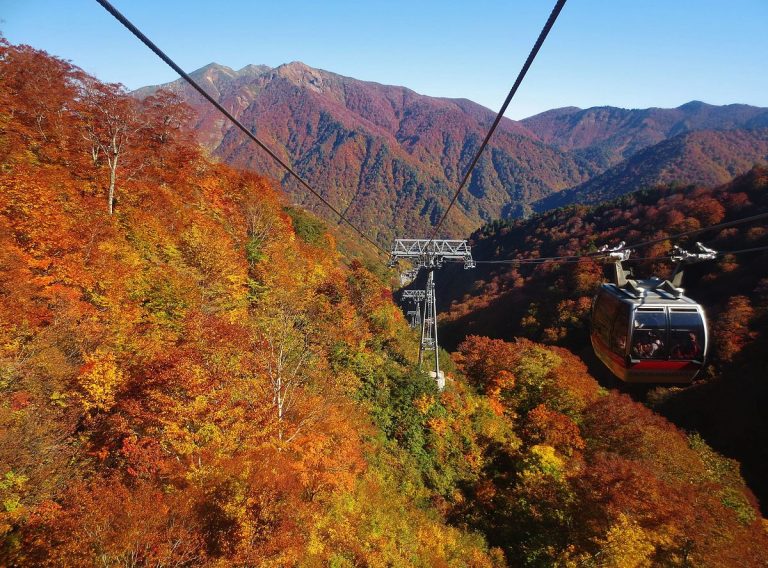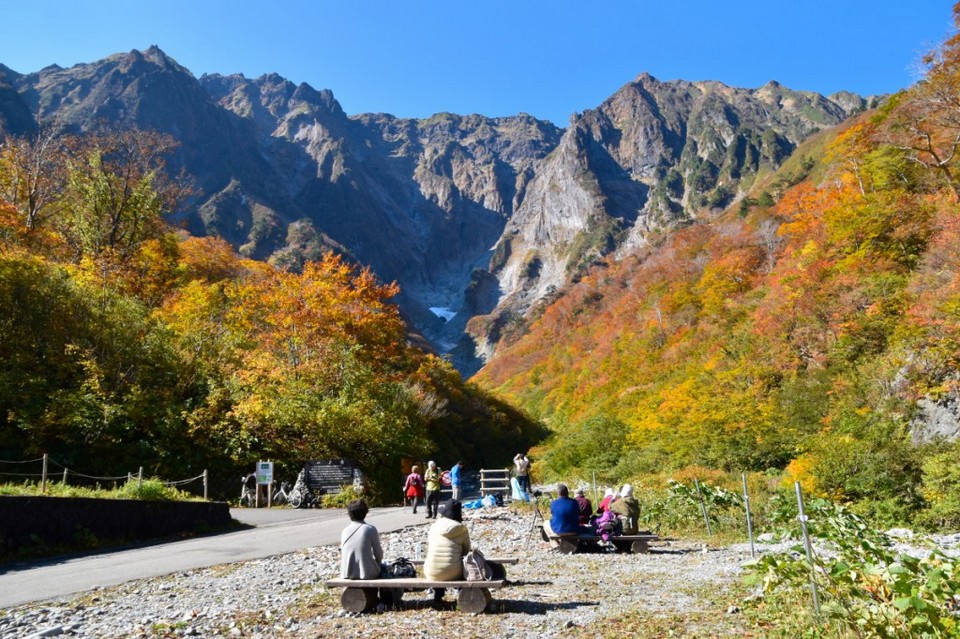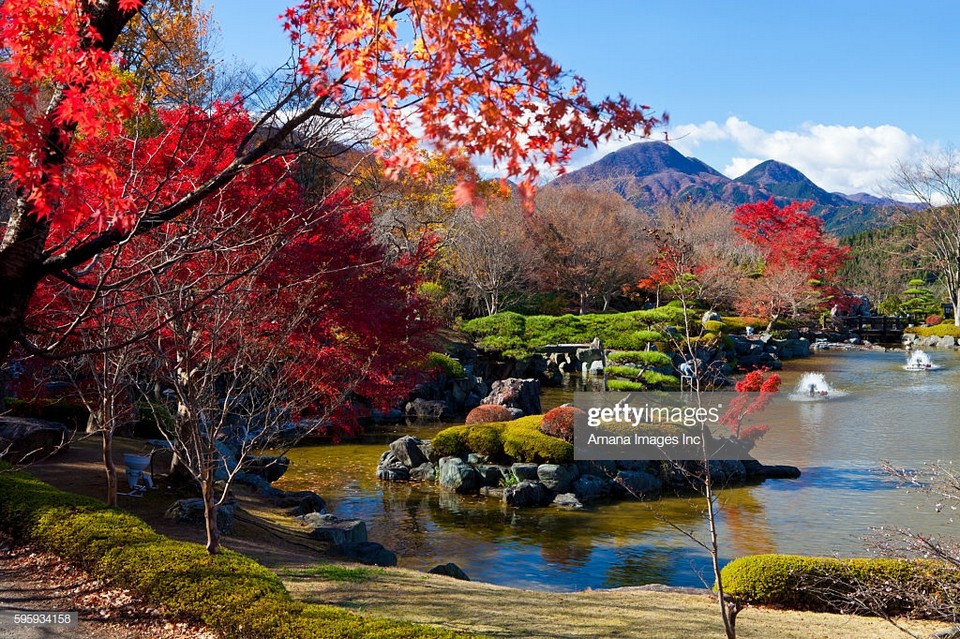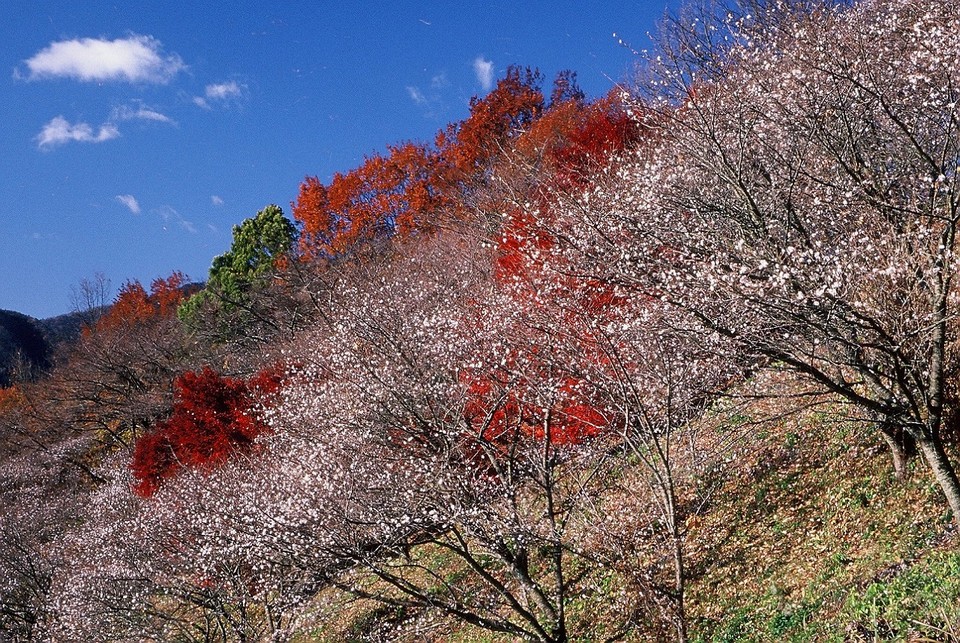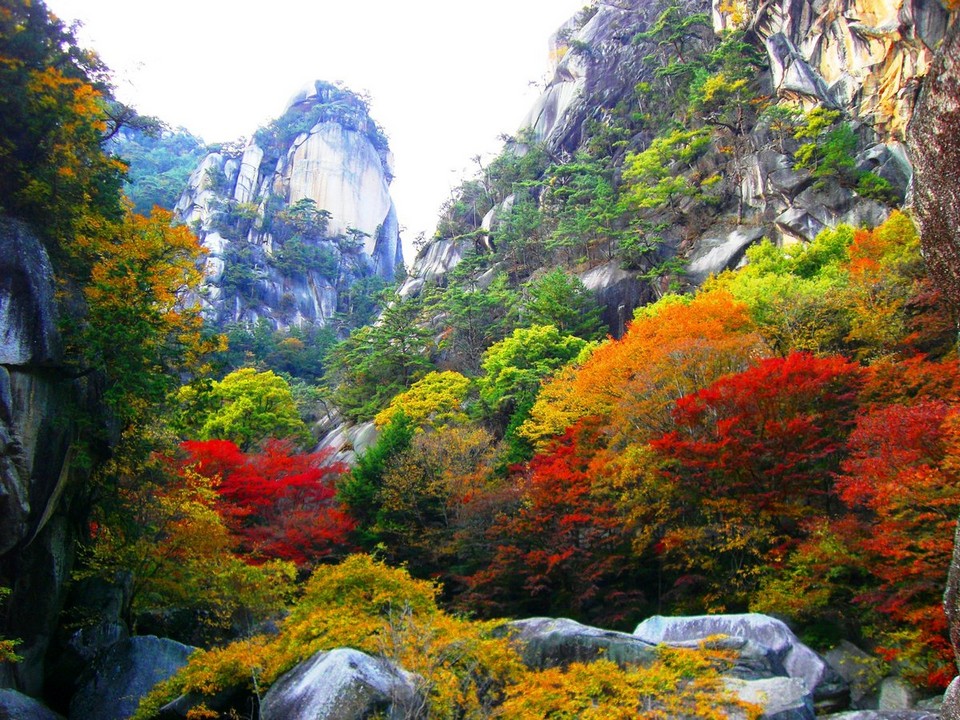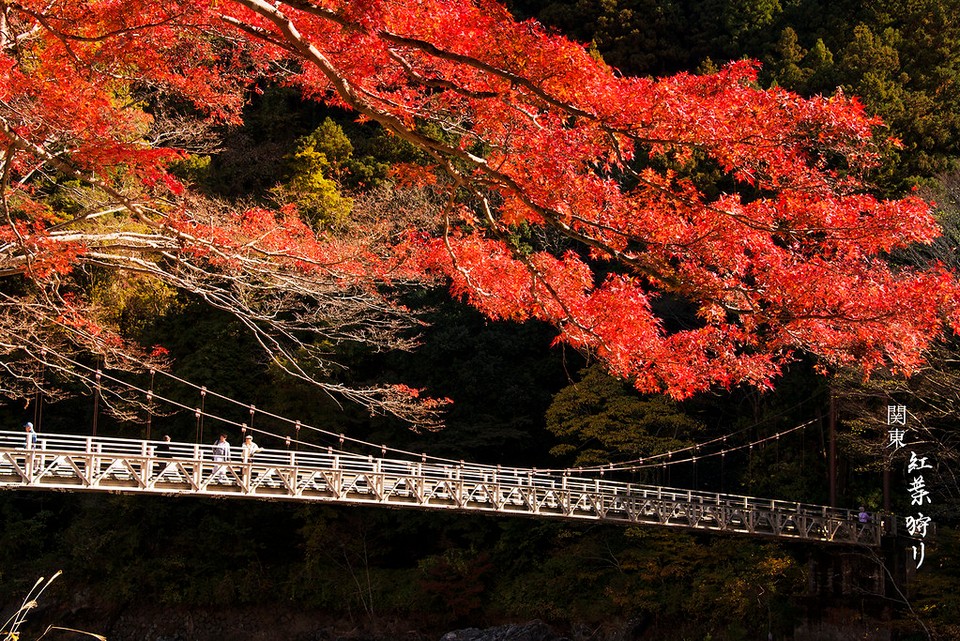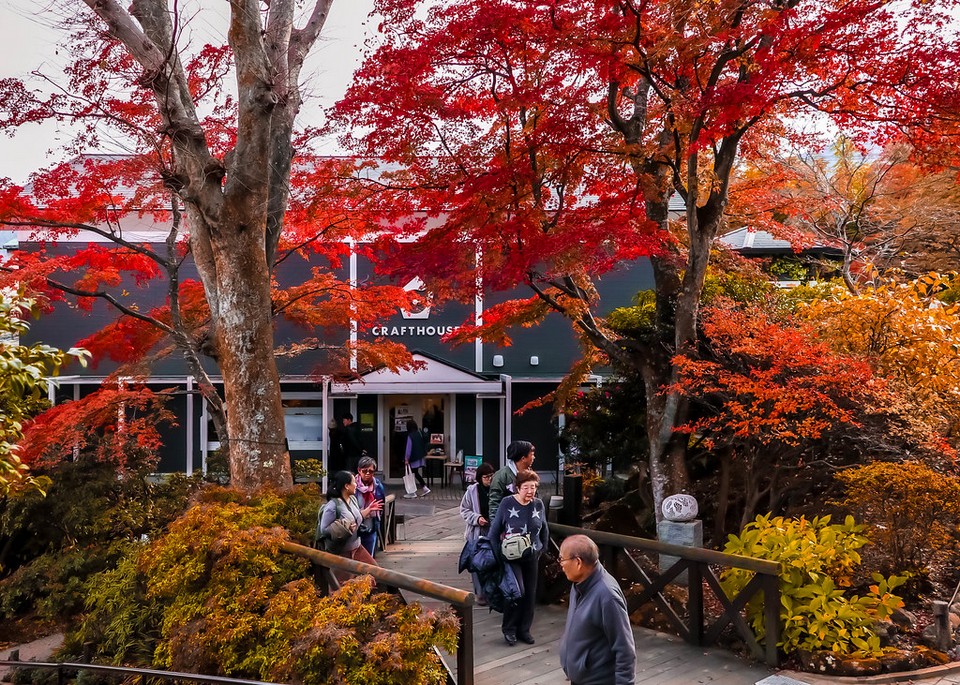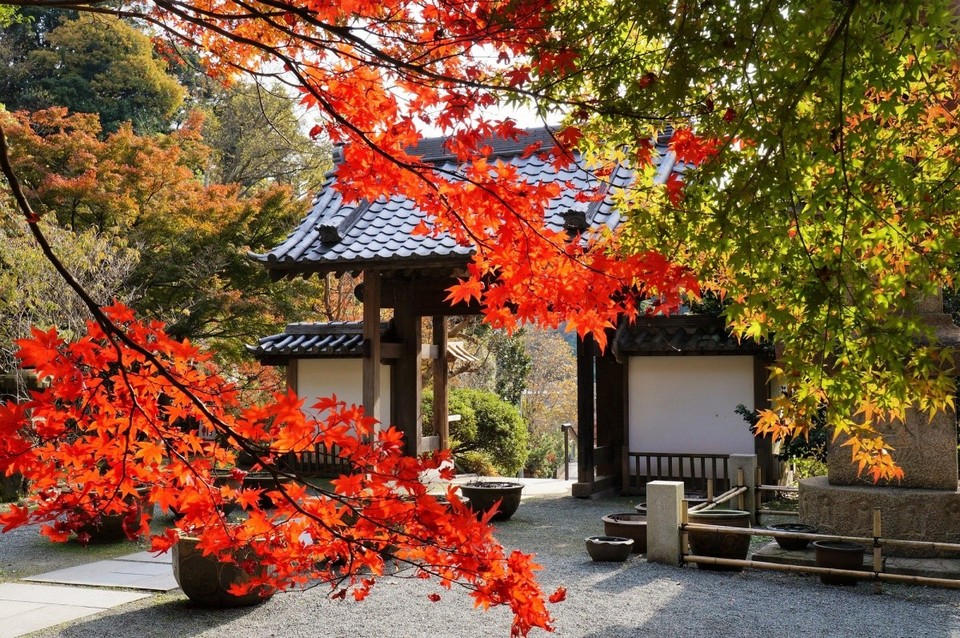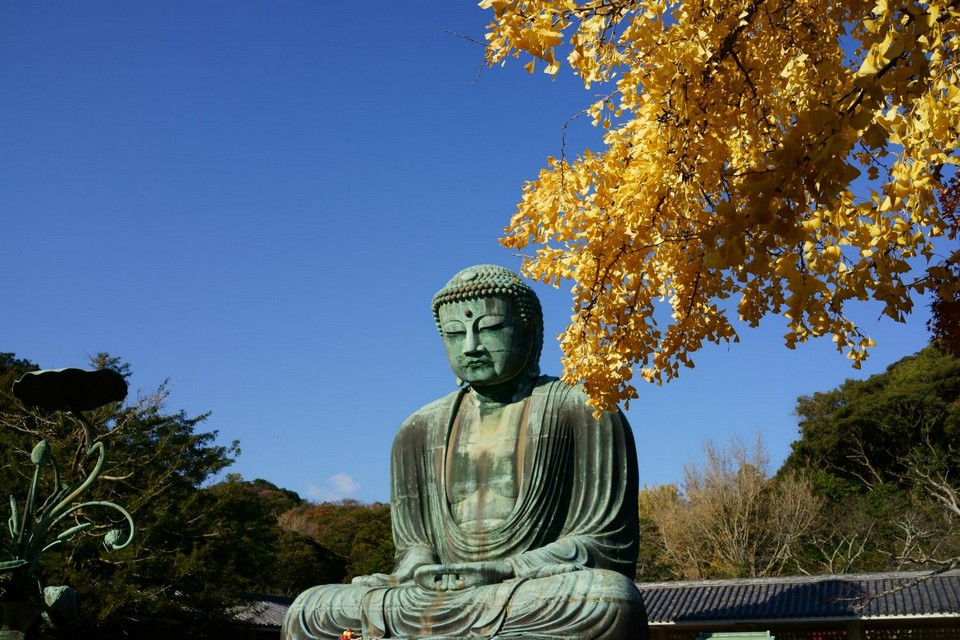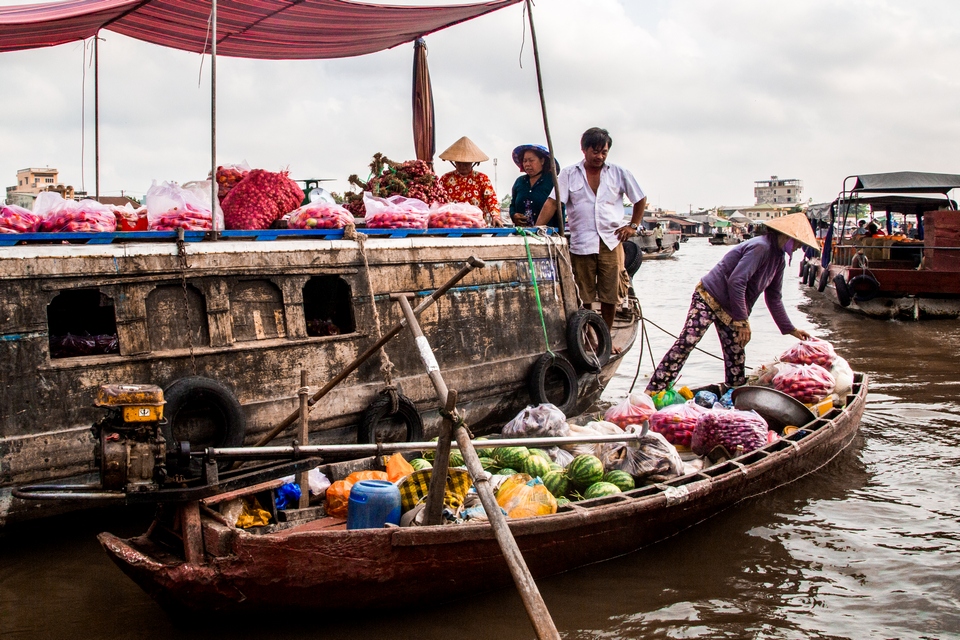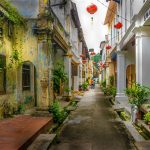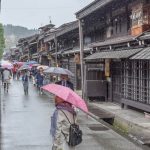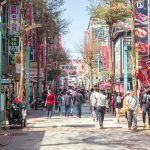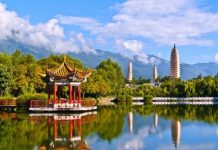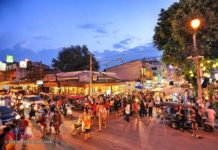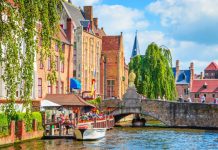Once seen the red leaves of Japanese autumn is always a dream of any visitor. Every time when autumn comes, everywhere in Japan is dyed with an extremely eye-catching yellow and red color of maple leaves and ginkgo leaves when they changing color. In addition to spring with cherry blossoms, autumn is a super hot time, super ideal and extremely romantic to make a trip to Japan.
- Tokyo fall foliage forecast 2024 — When & 13+ best place to see autumn leaves in Tokyo
- Hokkaido autumn travel blog — 15+ top things to do & best places to visit in Hokkaido during autumn
- Kyoto fall foliage forecast 2024 — The timeframe & 15+ best place to see autumn leaves in Kyoto
- Hokkaido autumn itinerary blog — What to do & suggested Hokkaido 9 days itinerary autumn
- Meiji-jingu Gaien — One of the best places to see autumn leaves in Tokyo
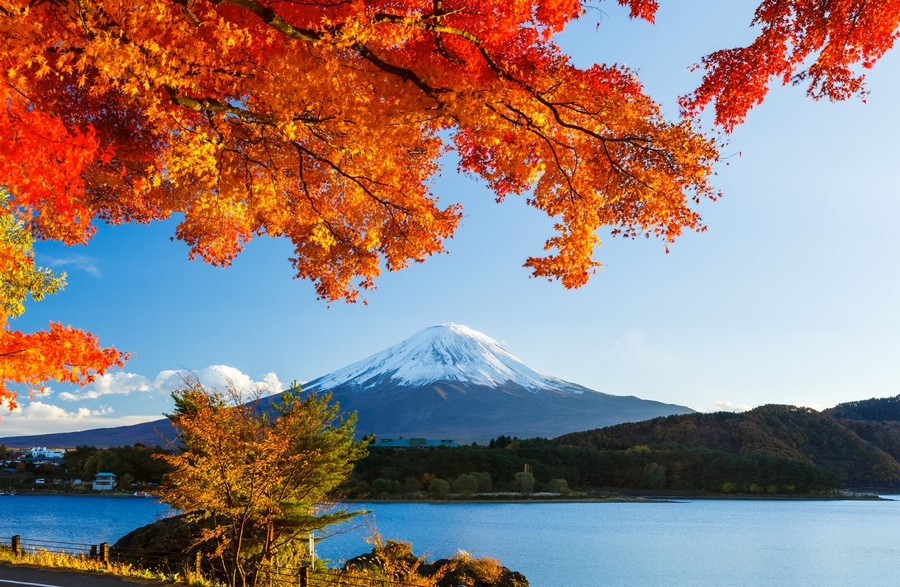
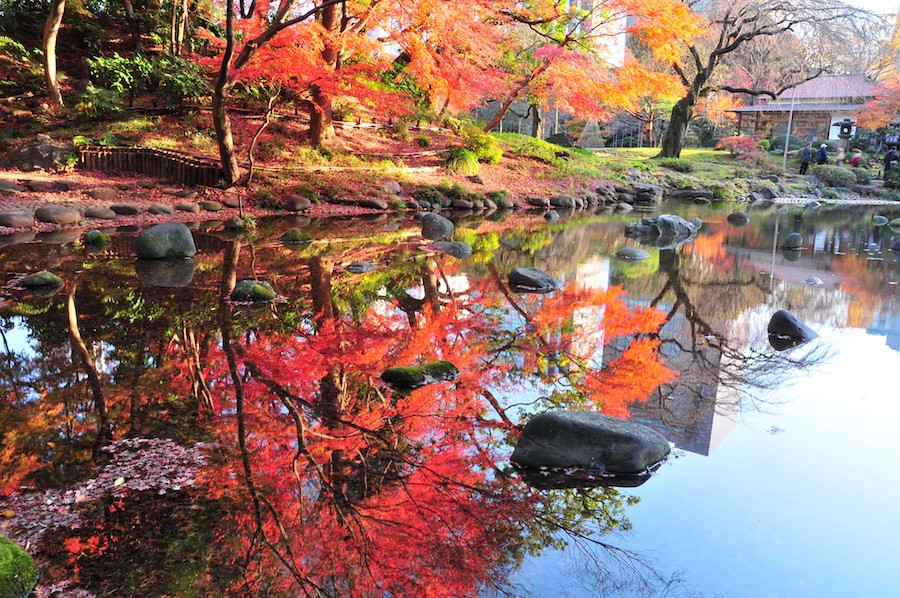
So, where to see autumn leaves in Japan? Let’s check it out our Japan autumn leaves forecast 2024 (Japan fall foliage forecast 2024) and best autumn foliage in Japan guide (autumn foliage Japan, Japan fall foliage) with the list of 42 best autumn spots in Japan including best places to see autumn leaves in Japan, best place to view autumn leaves in Japan, best places to visit in Japan in autumn and places to visit in Japan during autumn to find out the best answer!
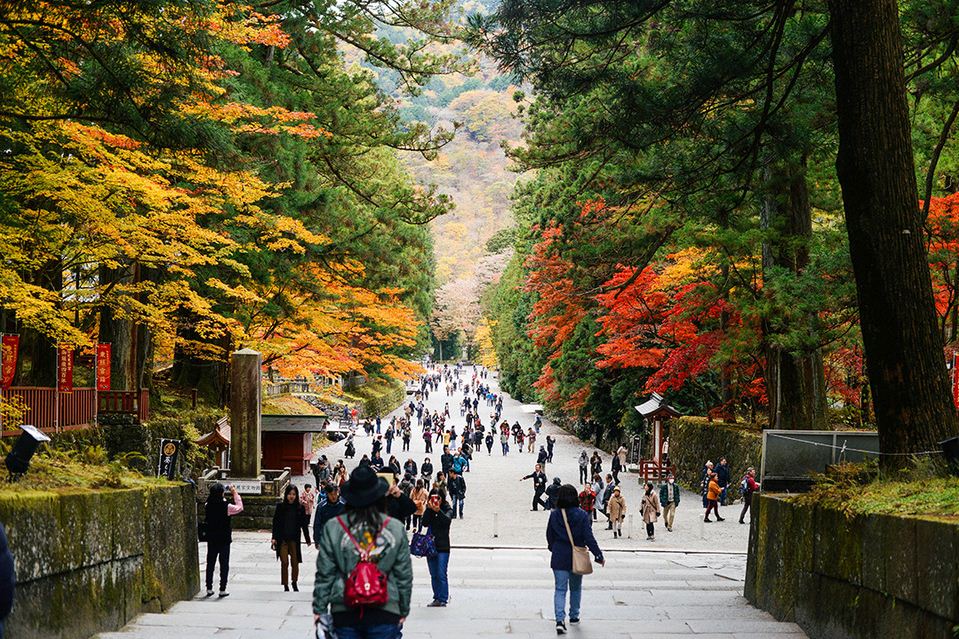
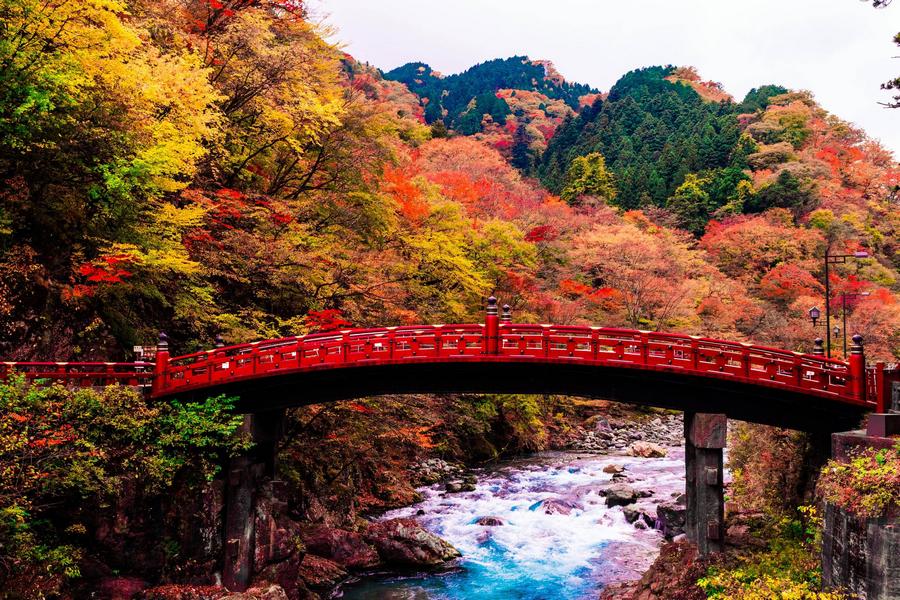
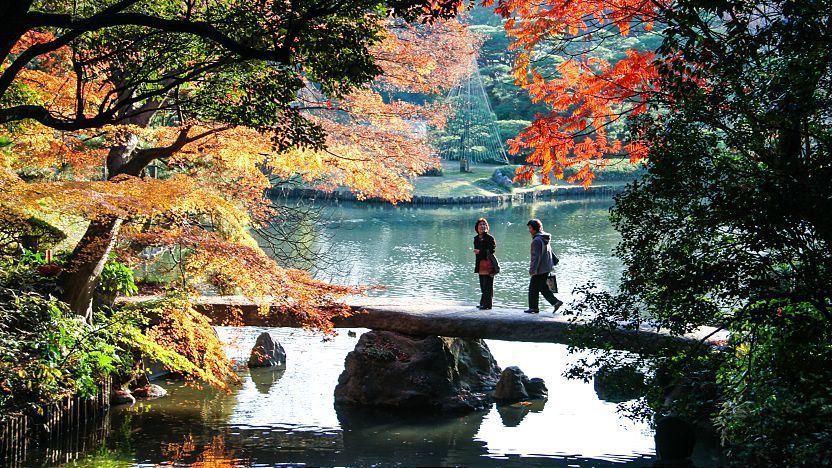
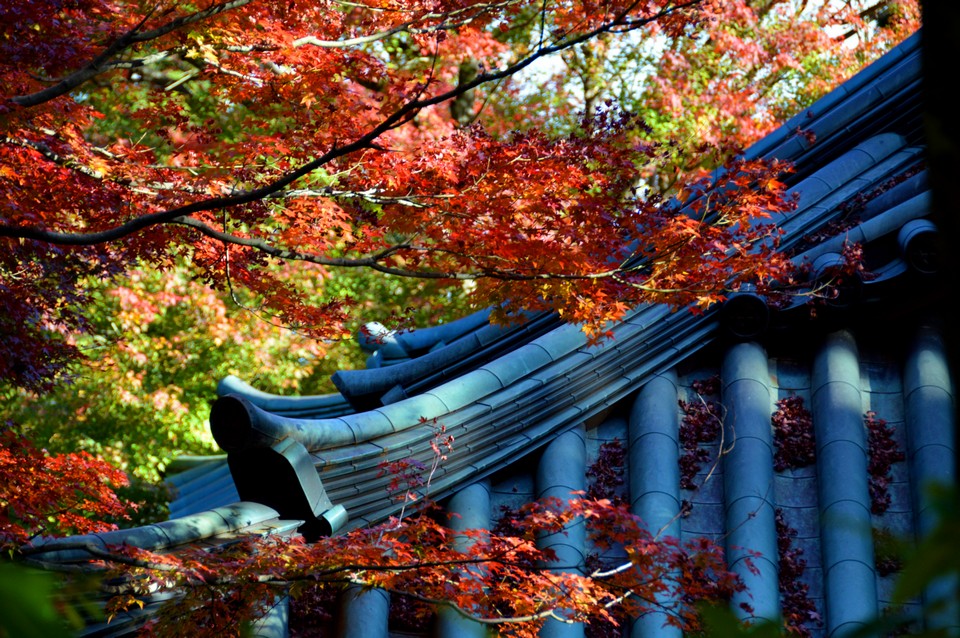
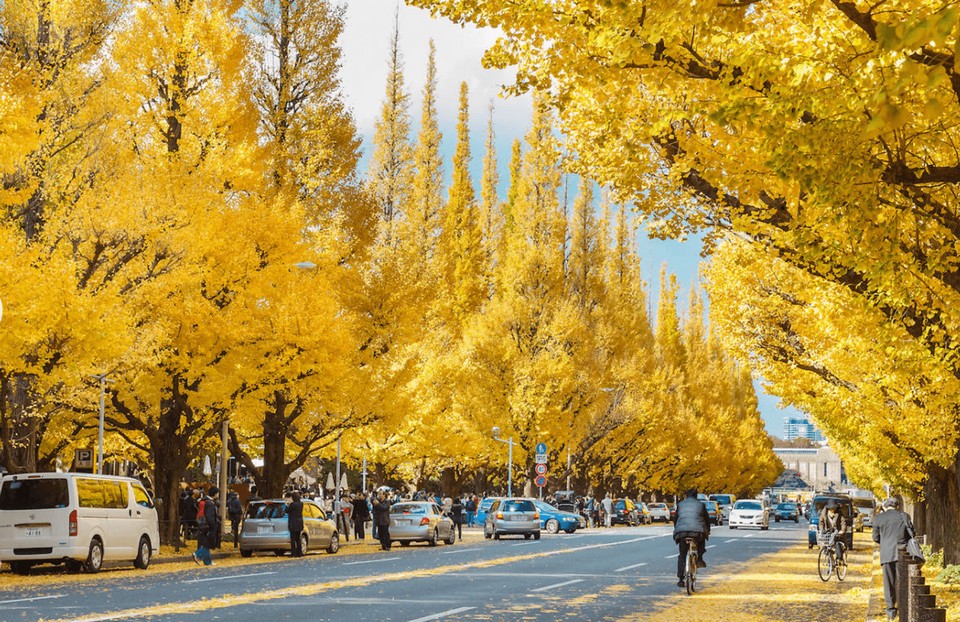
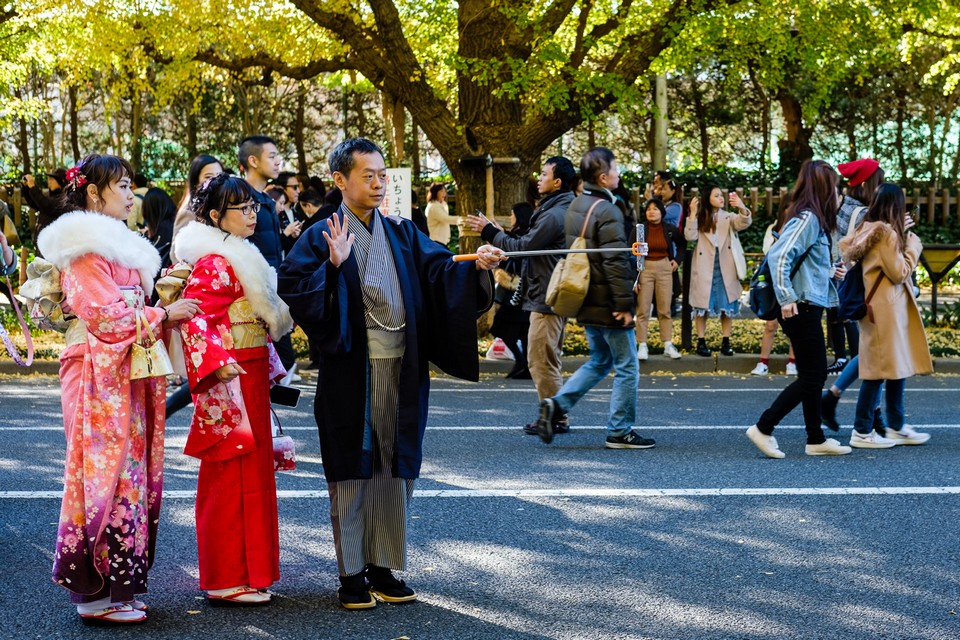
The Japanese call the red leaves is Momiji (Momiji Japan) or Koyo (Koyo Japan). The word Koyo also means the phenomenon of changing the leaf color of a tree, usually before the leaves fall. Sometimes Momiji will be synonymous with maple tree, the most beautiful tree among the autumn trees. Depending on the type of tree, the color of the leaves when changing color will be different. Autumn leaves often come in three colors: red, yellow, and reddish brown. Although the word Koyo translates into Kanji language, it means red leaves but is used to refer to all types of autumn leaves, regardless of color.
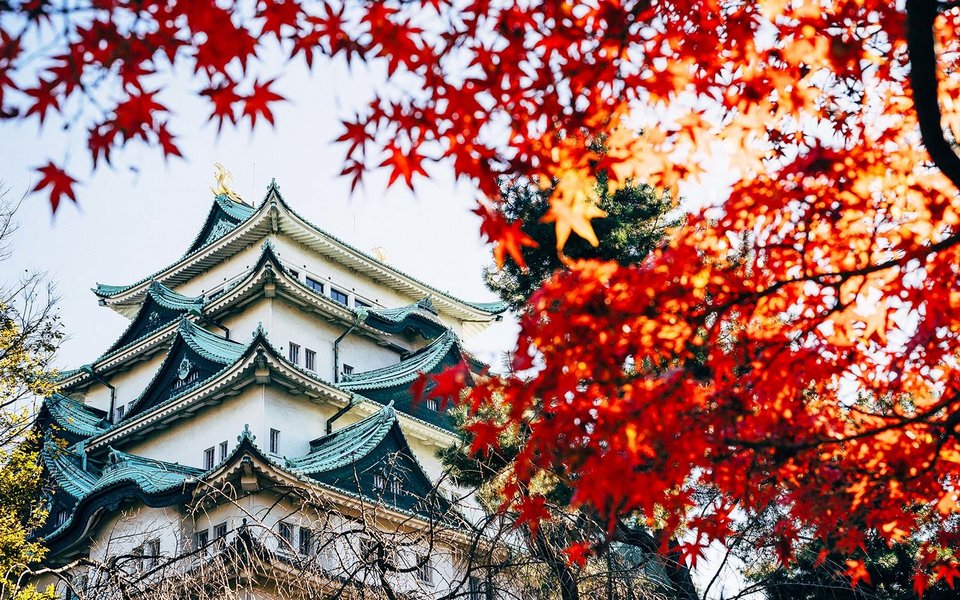
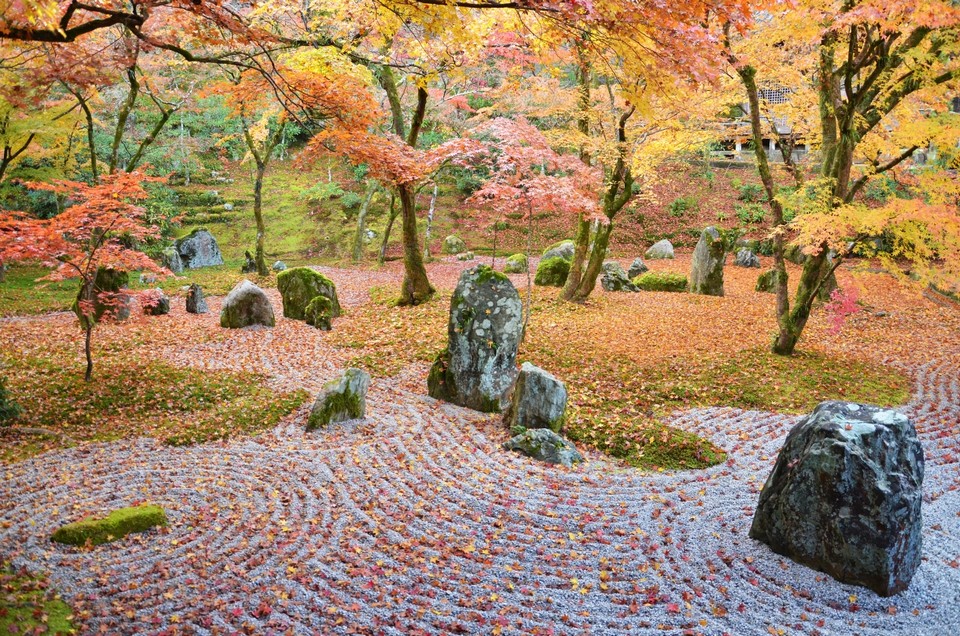
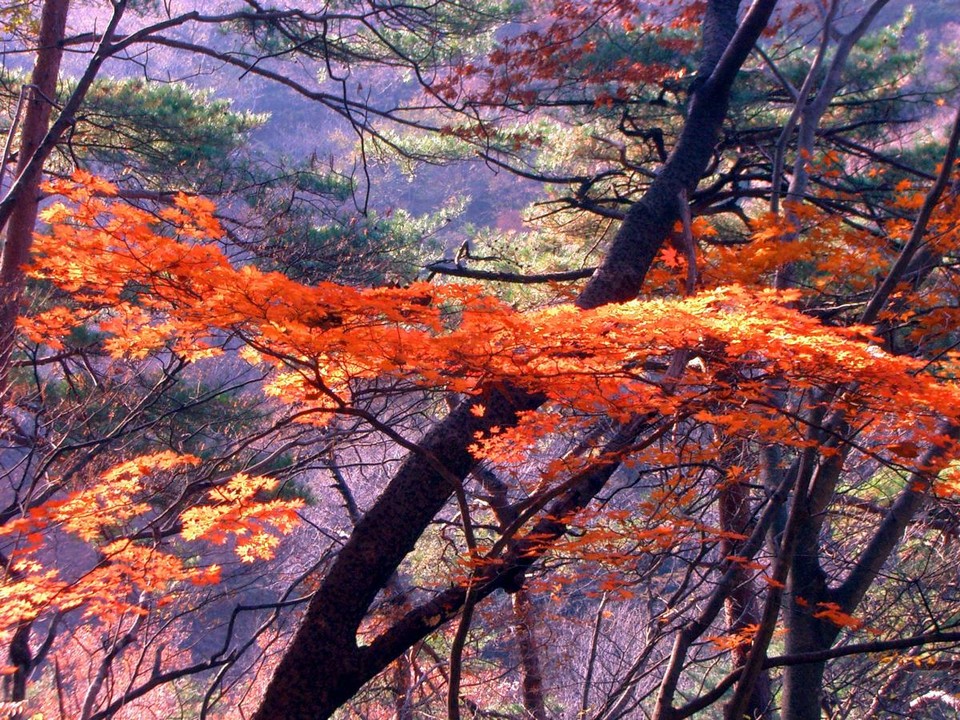
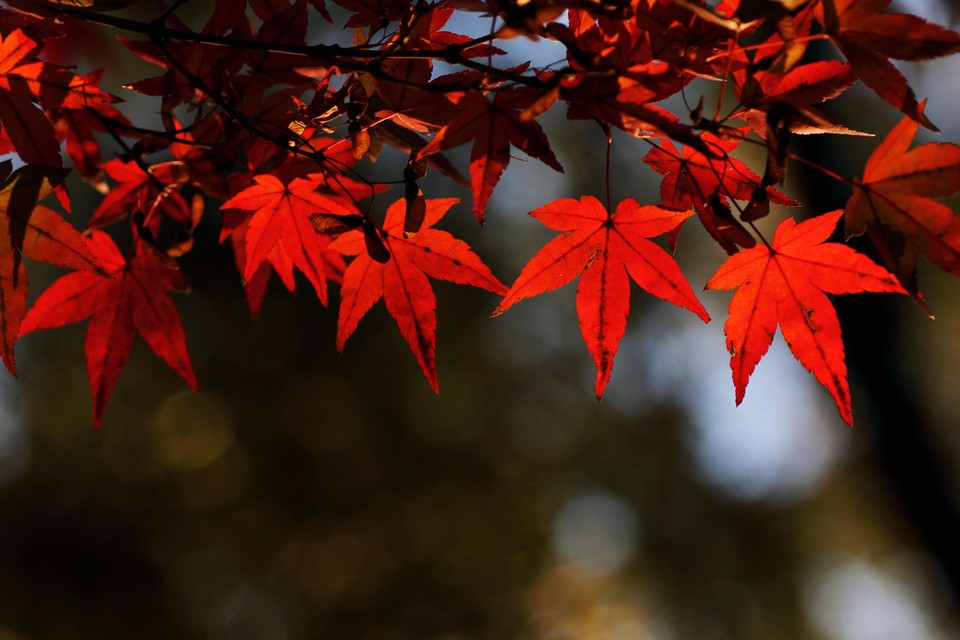
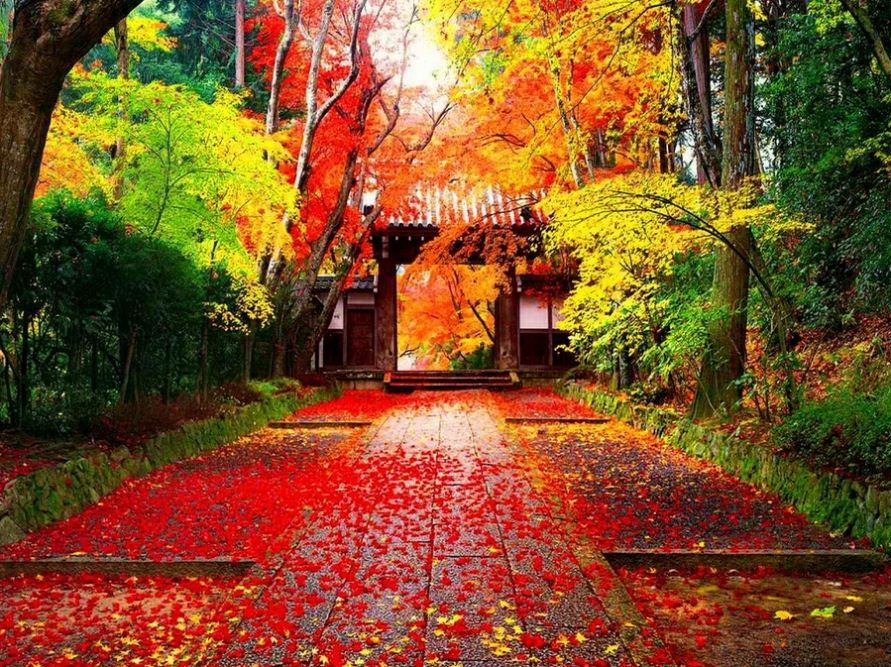
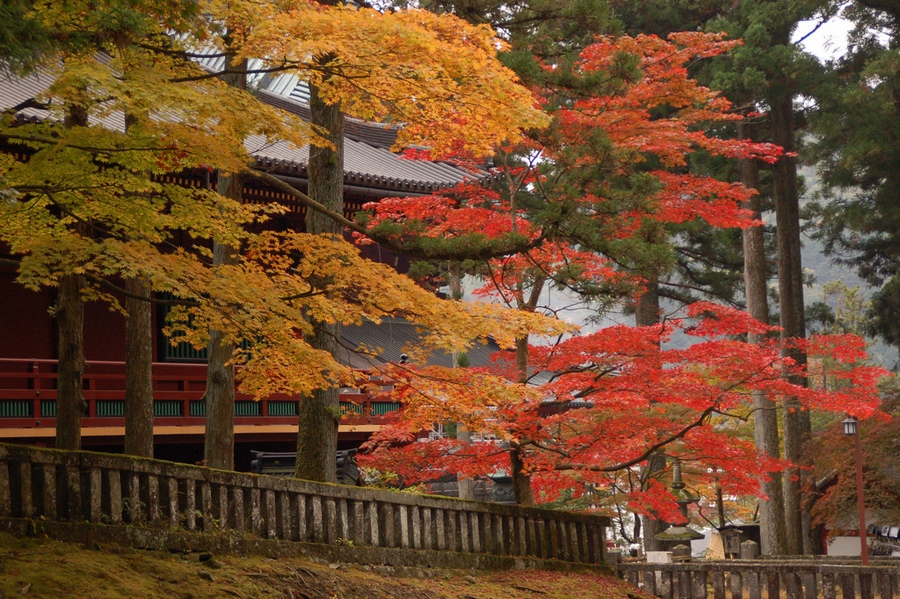
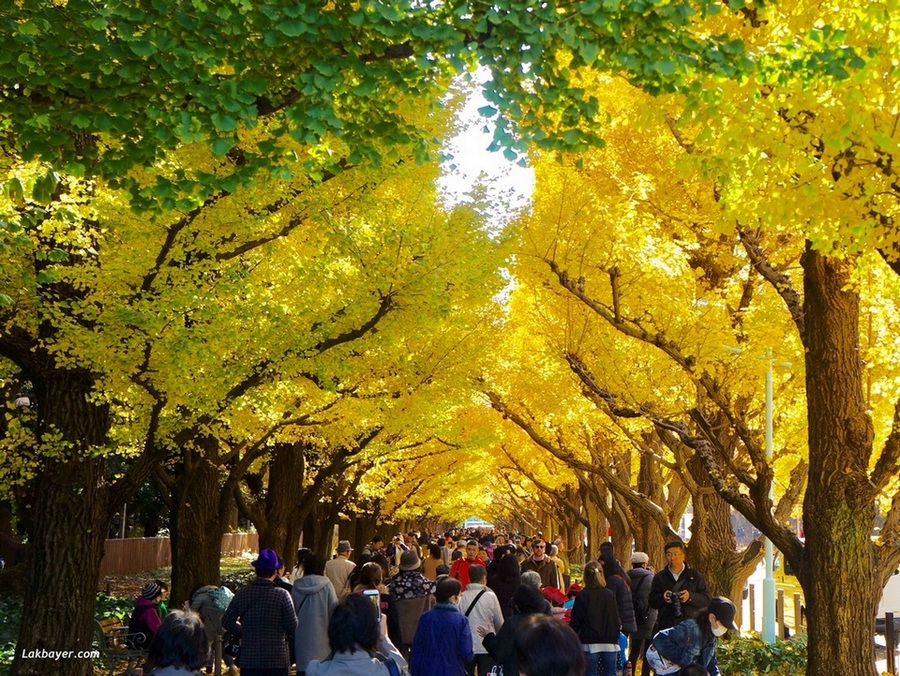
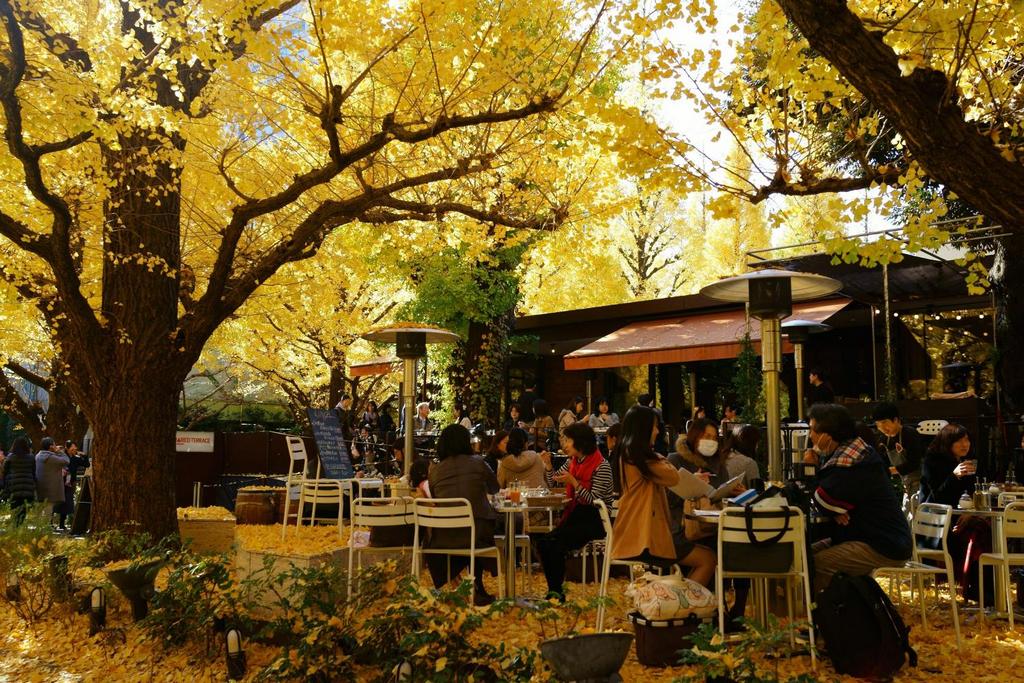
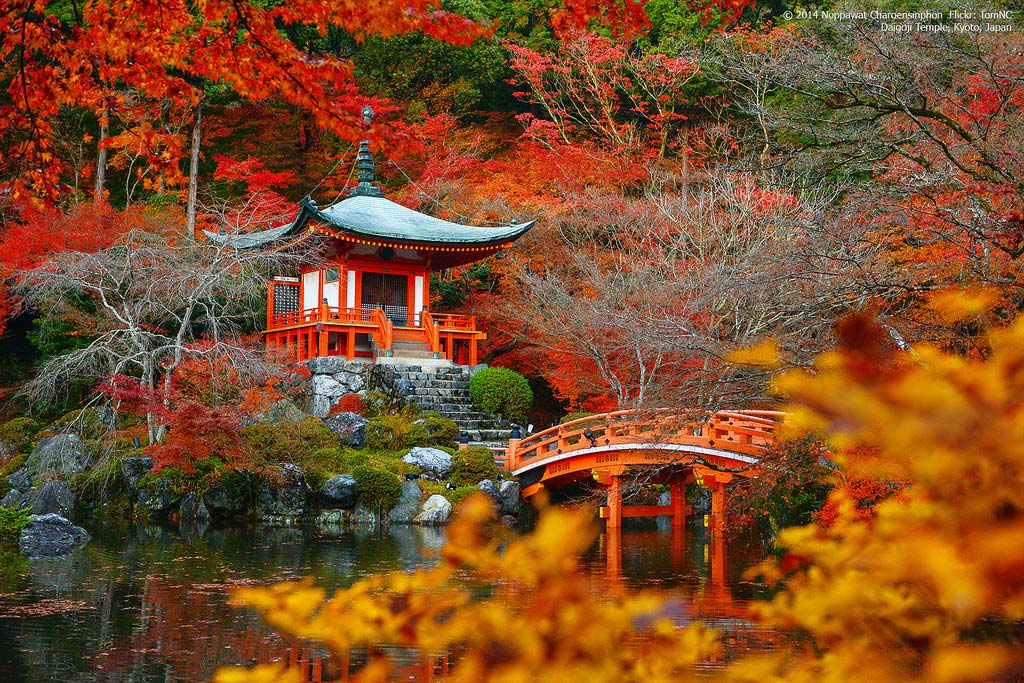
Japan autumn leaves forecast 2024 (Japan fall foliage forecast 2024): When is the best time to see the best autumn foliage in Japan?
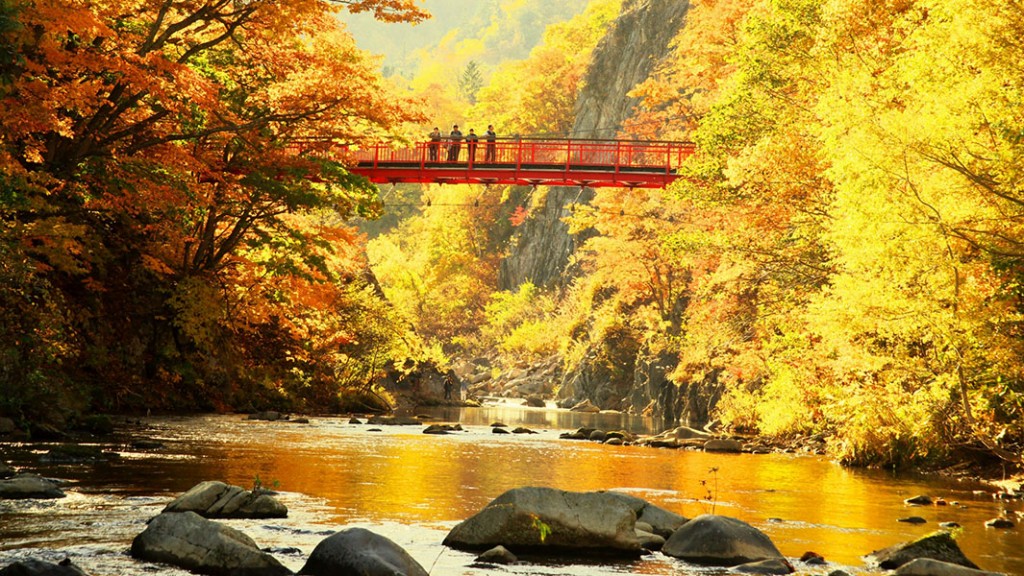
In Japan, usually in mid-September in Hokkaido – the northernmost region of Japan – will begin the first season of leaves color changing, then the red leaves color will gradually spread to the southern regions within about 50 days. The changing leaves color takes place in the early morning, when the temperature is from 6 to 7 degrees Celsius. The fall foliage season usually lasts only 20 to 25 days, and the time change from year to year.
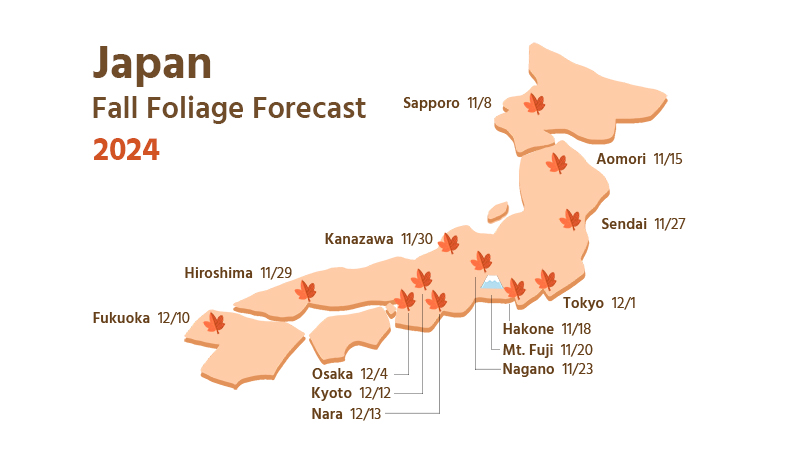
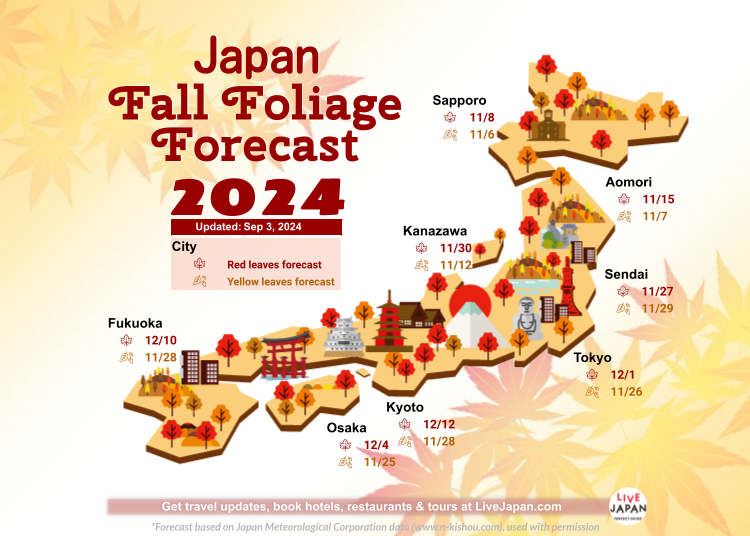
This red leaves season will come later than every year. Perhaps the scorching heat of summer is the main reason why this year’s red leaf season comes much later than every year. Experts explain that temperature plays an important role in determining the timing of color change and the intensity of leaf color.
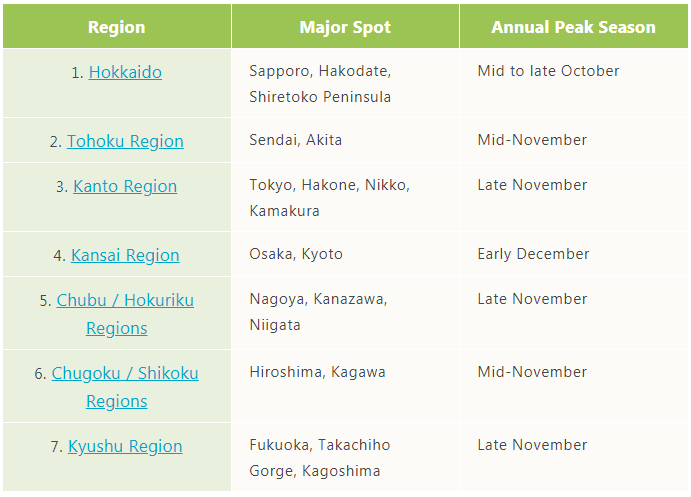
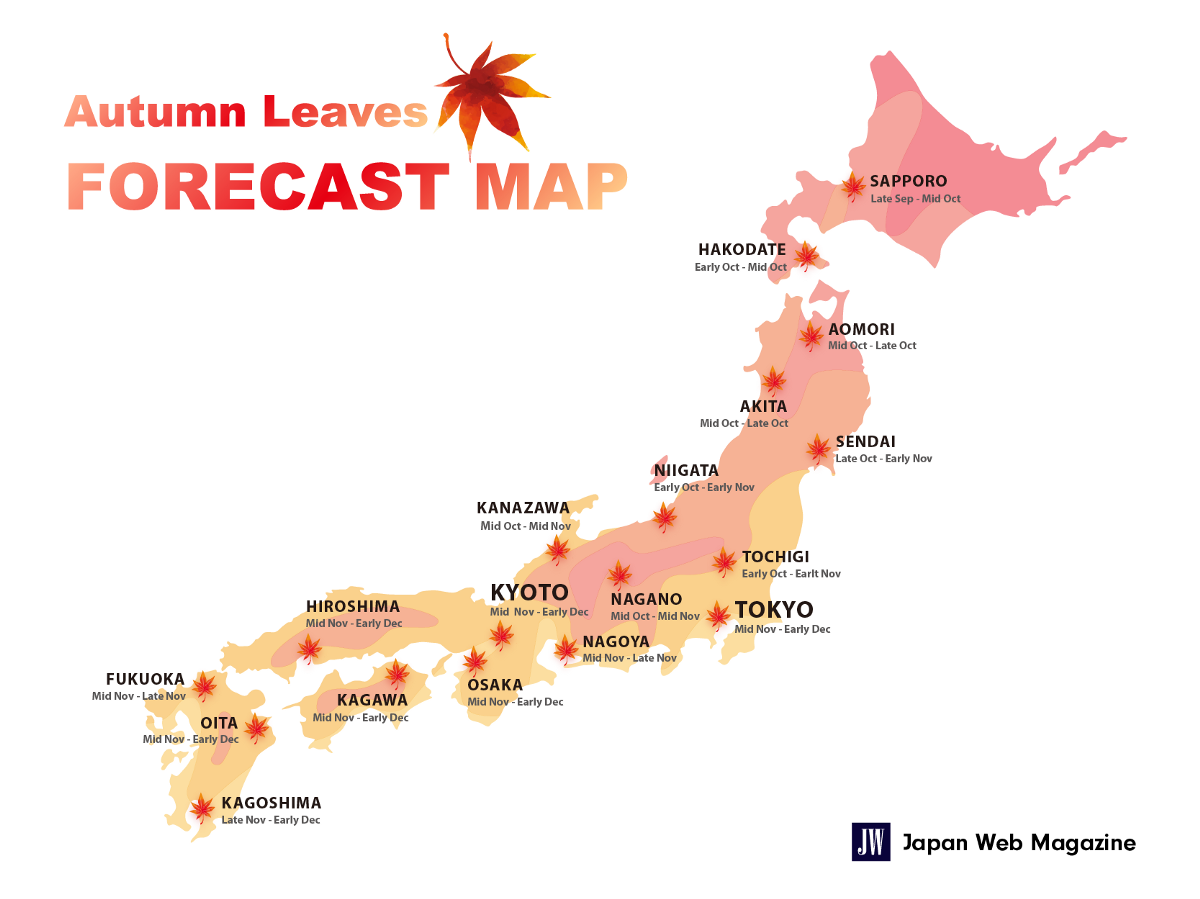
Japan fall foliage forecast 2024 by regions
Kanto region: Tokyo and around
In the previous post, we introduced the best 13 red leaves viewing spots in Tokyo and nearby. You can see here. So, in the introduction section of the red leaves viewing spots in this Kanto region, we will introduce more about the red leaves spots beyond Tokyo.
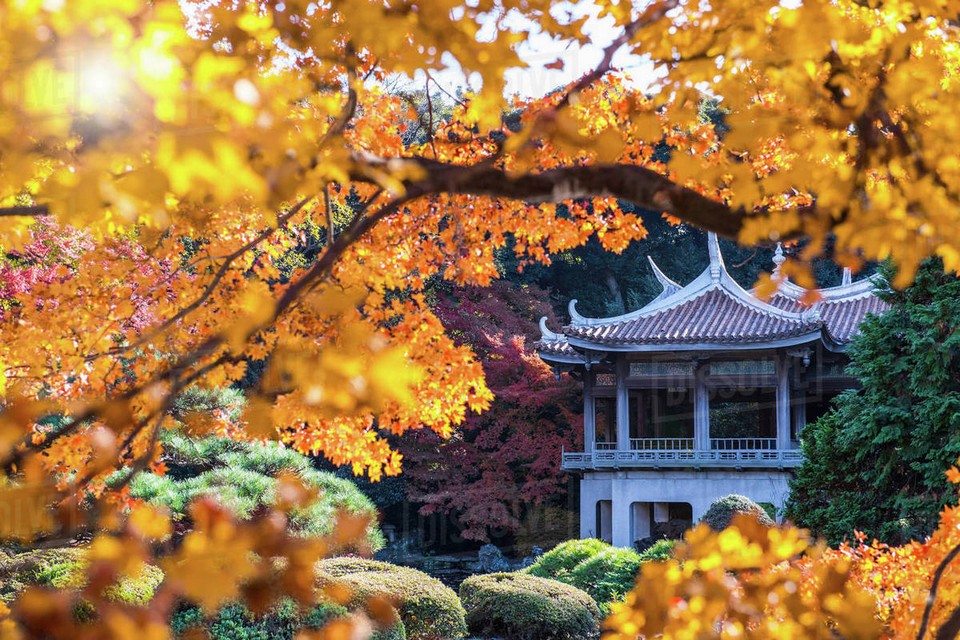
Ashikaga Flower Park
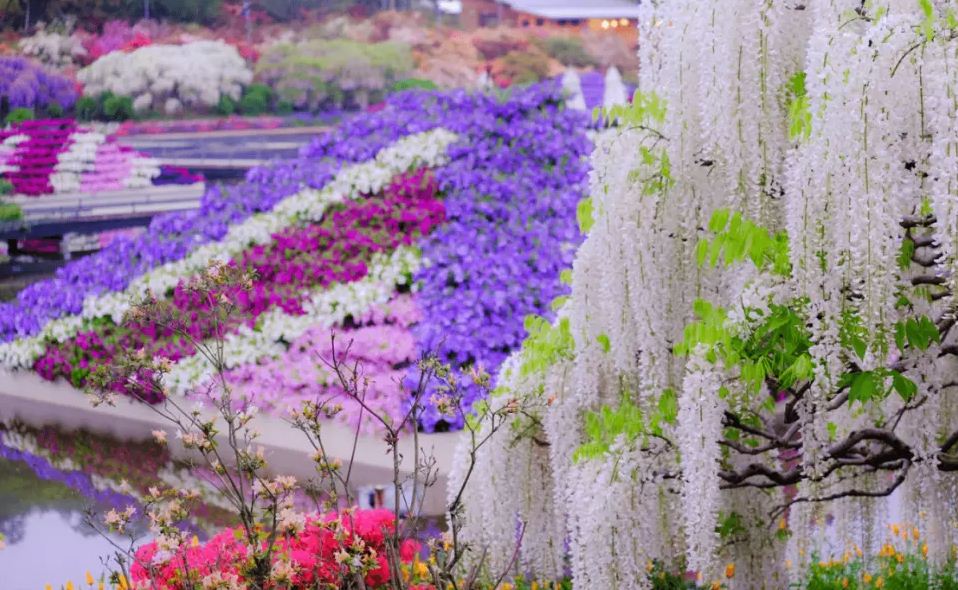
Ashikaga Flower Garden is located in Togichi Prefecture, about 100km from Tokyo, about 40 minutes ride by Shinkansen. This flower garden has blooming flowers all year round with many different species, especially in the spring with the super hot wisteria flowers. However, the fall is equally beautiful when the yellow and red leaves of the maple trees and the ginkgo trees dyed both sky and ground of Ashikaga. Strolling under the red leaves trees to experience the romantic feeling of Japanese autumn, really poetic. In addition to red leaves, in October also has a purple flower field, which looks quite like lavender but actually is Amethyst Sage Flower, a similar species, is also very beautiful.
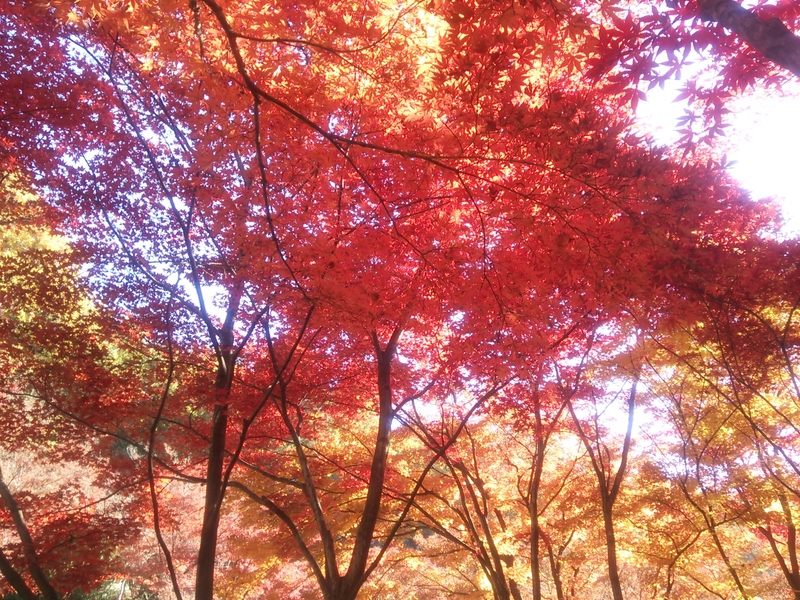
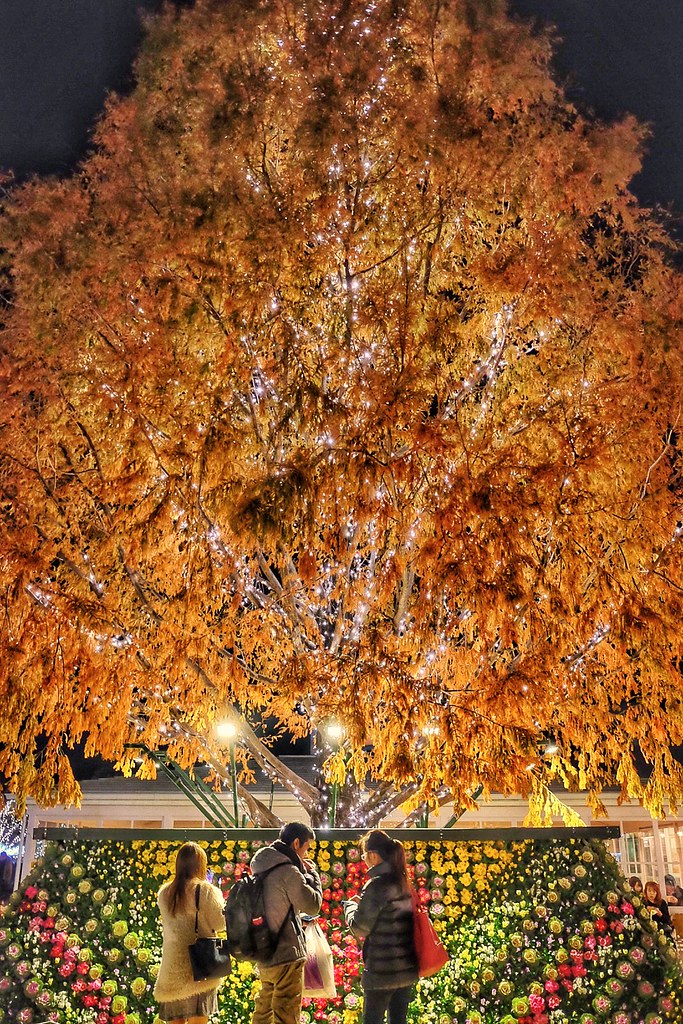
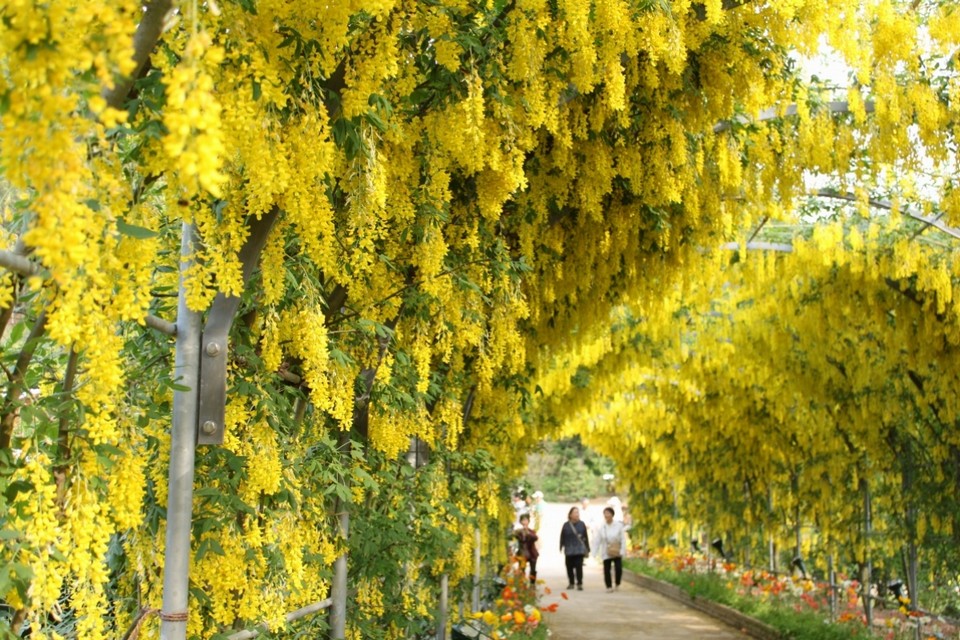
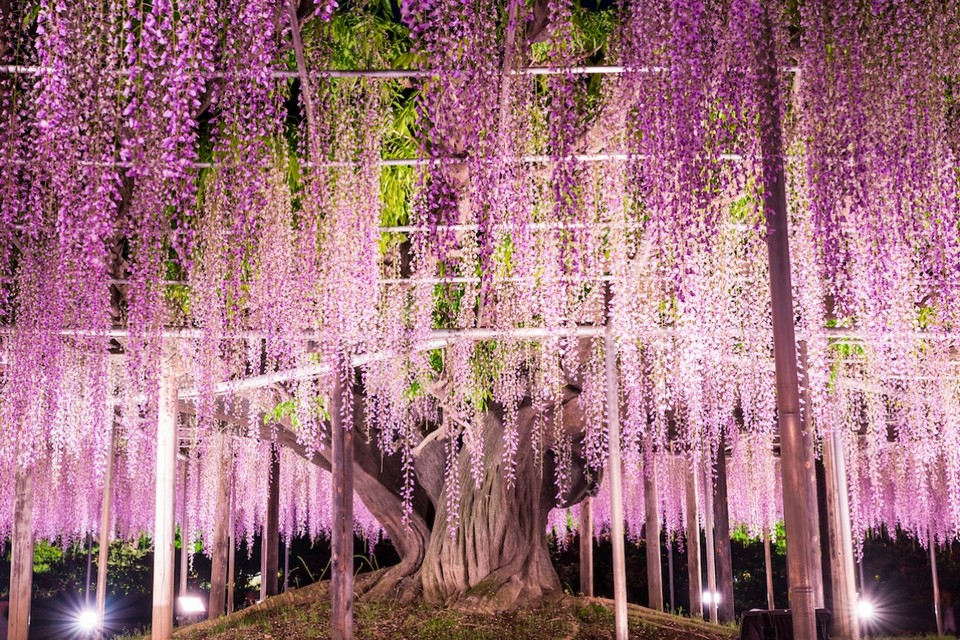

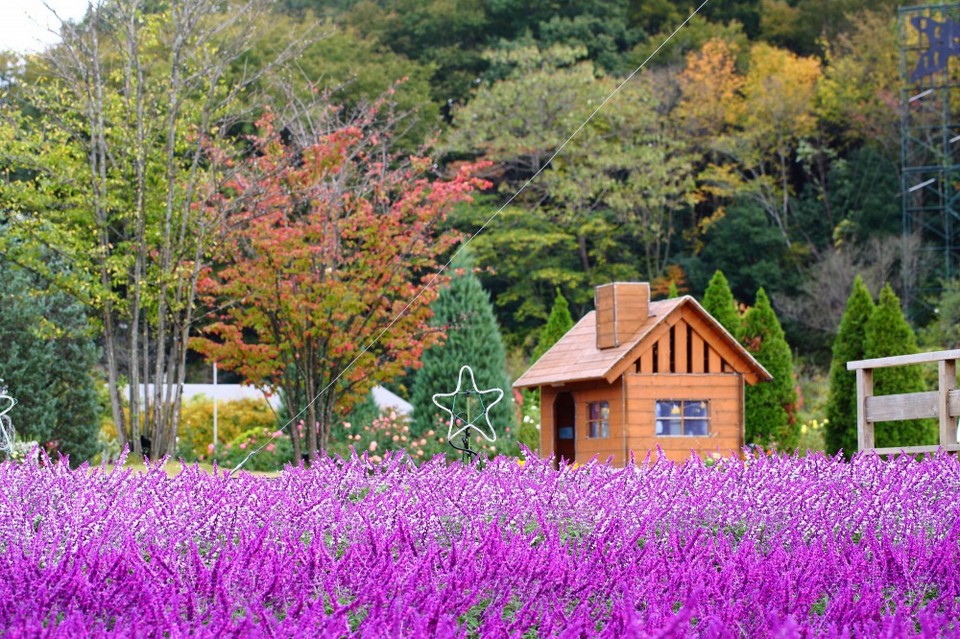
Getting there
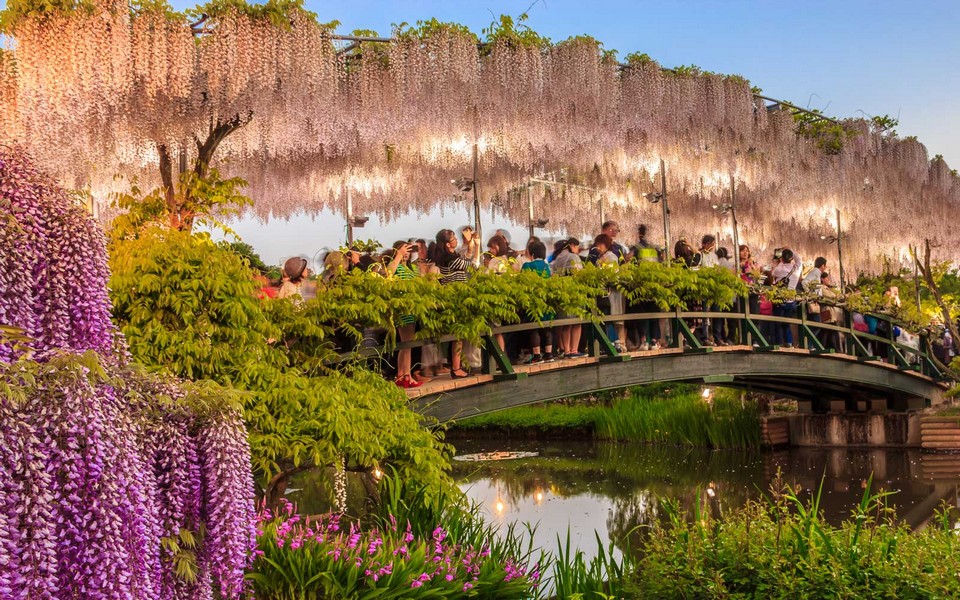
JR: Take the Tohoku Shinkansen to Oyama Station (42 minutes, 2 trips every 1 hour), change to Ryomo Line to Tomita Station (33 minutes, 2 trips every 1 hour). The single ticket for the trip is 3.990 yen ($37.67). The distance from Tomita Station to Ashikaga Flower Park is about 1 km, you can reach by foot.
Address: 607 Hasamacho, Ashikaga, Tochigi 329-4216, Japan
Hours: 9AM–5PM / Closed: First Wednesday and Thursday of February, December 31
Phone: +81 284-91-4939
Admission: 300-1800 yen ($2.83 – $17) depending on season
Url: https://www.ashikaga.co.jp/english/
Watarase Keikoku Railway
This railway line located between Gunma and Togichi prefectures is famous for its poetic and beautiful scenery as picturesque. Watarase Keikoku Railway is one of the most beautiful and scenic train routes in Japan with one side is majestic mountains, spring with brilliant cherry blossoms, autumn with red maple leaves, and the other side is murmuring streams, not to mention that if you stop at Mizunuma station, you will also find an interesting hot spring. Experiencing a train ride through the “masterpieces” of autumn will definitely leave you with extremely memorable memories.
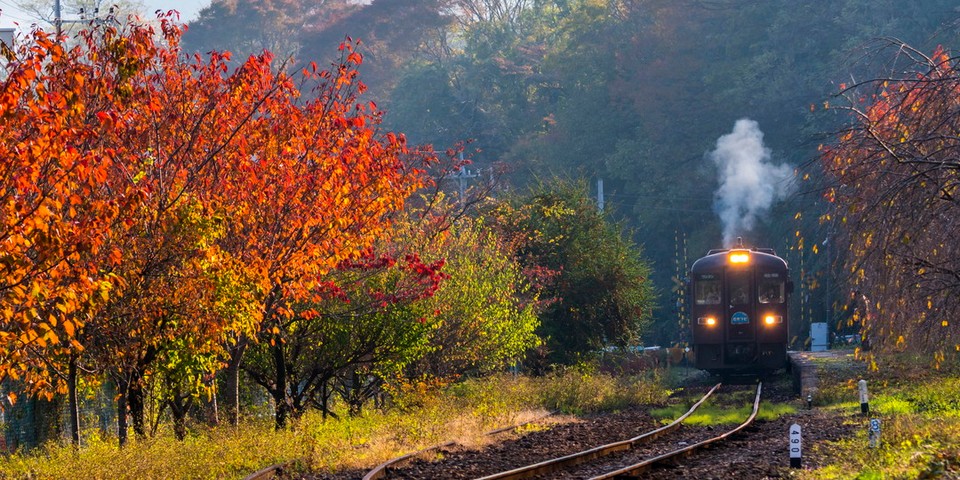
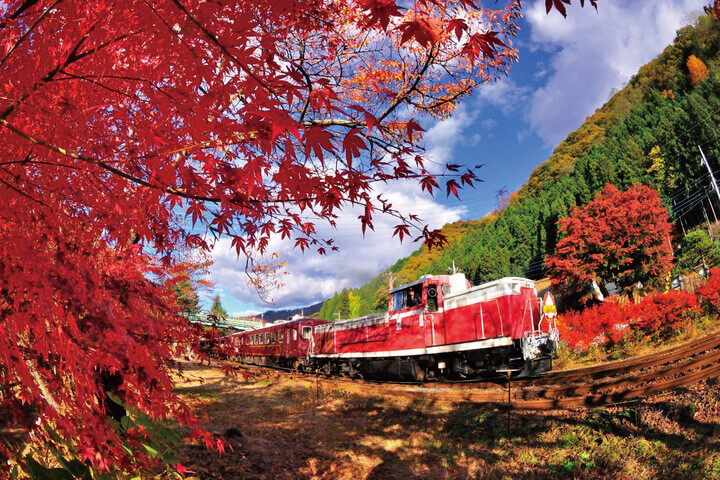
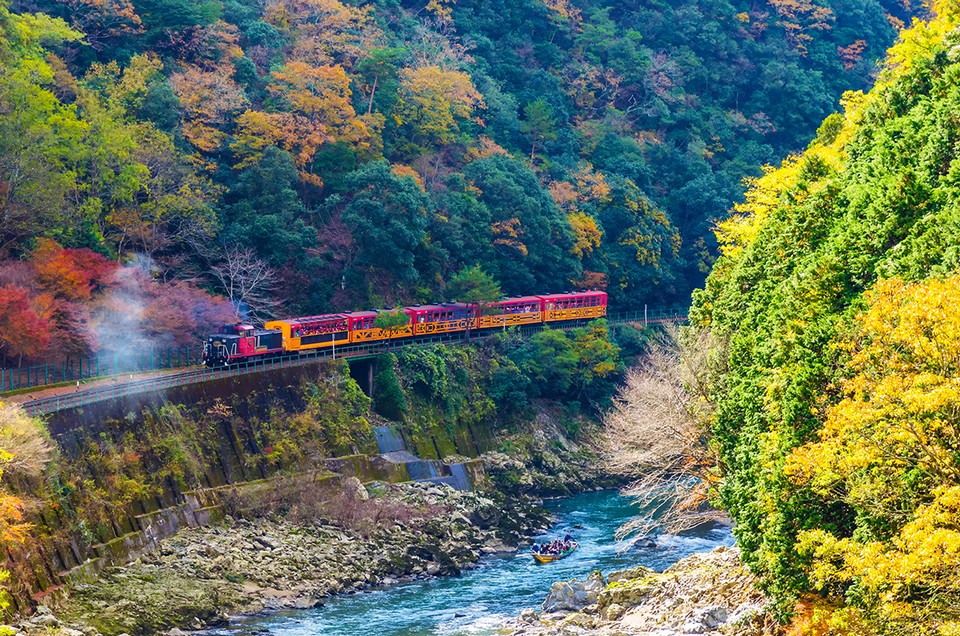
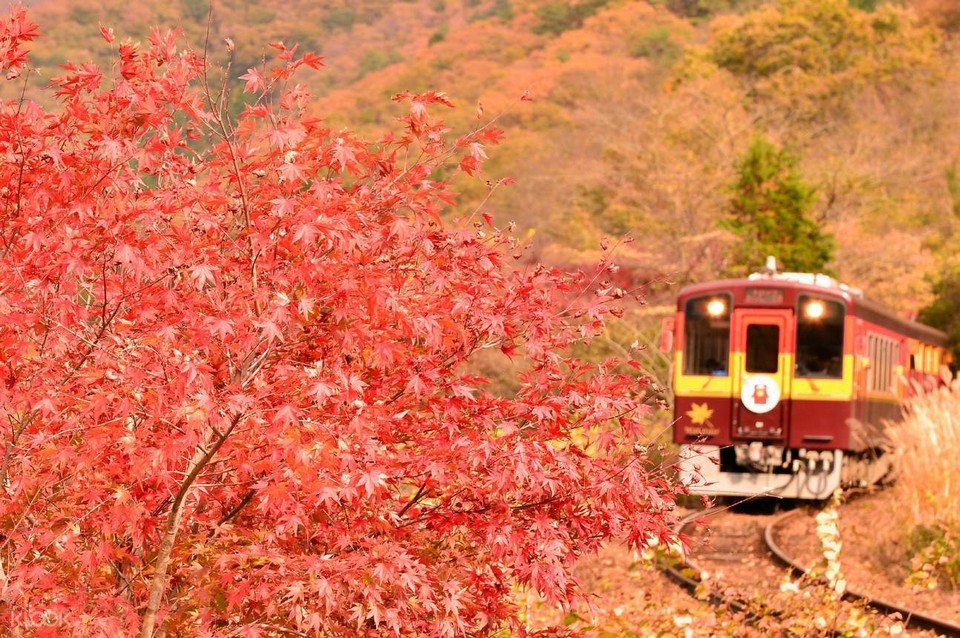
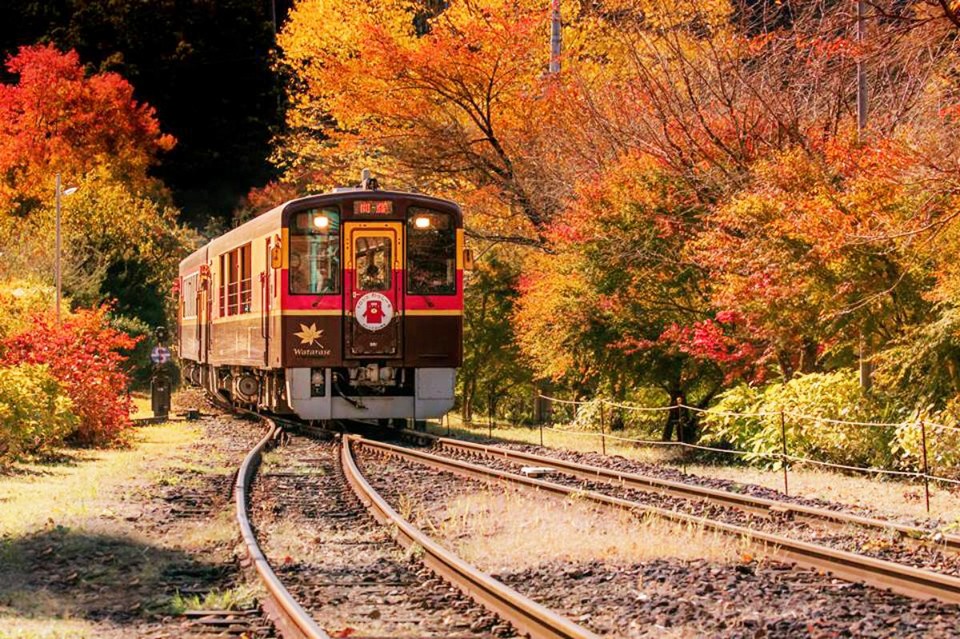
Getting there
JR: From Tokyo Station to Kiryu Station (about 2 hours of travel). Kiryu Station on the JR Ryomo Line is connected to Watarase Keikoku Railway.
Kusaki Dam Lake
A super-large lake located on the road lead to the ancient citadel of Nikko. There are many walkways around the lake and the observation deck (I mean the sitting area from the above to see the autumn leaves). The majestic mountains around the lake gradually change color from green to yellow and red, very charming without knowing which words to use to describe, probably you only could go there to feel for yourself. If you have the opportunity to visit this lake, remember to bring a tea jar or coffee to sit in the middle of the mountains and forests, while sipping and enjoying the beautiful scenery and the cold weather, it is called a “peaceful land”. In addition to watching the maple leaf, near the lake there is a reclining Buddha statue, very tranquil, leisurely and peaceful, and there is also the Tomihiro Art Museum (Address: 86 Azumachokusagi, Midori, Gunma 376-0302, Japan / Hours: 9AM–5PM / Phone: +81 277-95-6333), worth a visit.
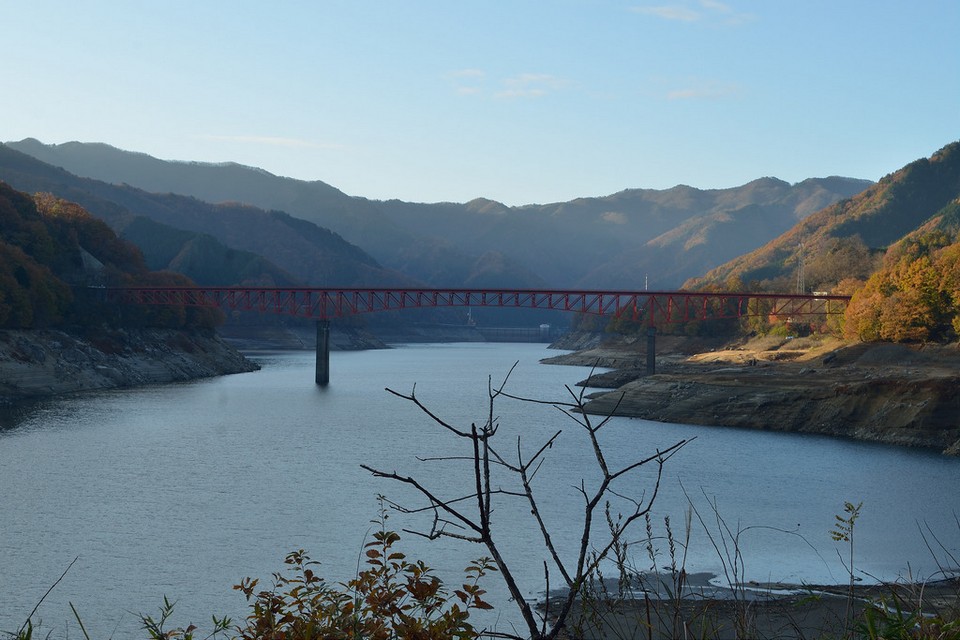
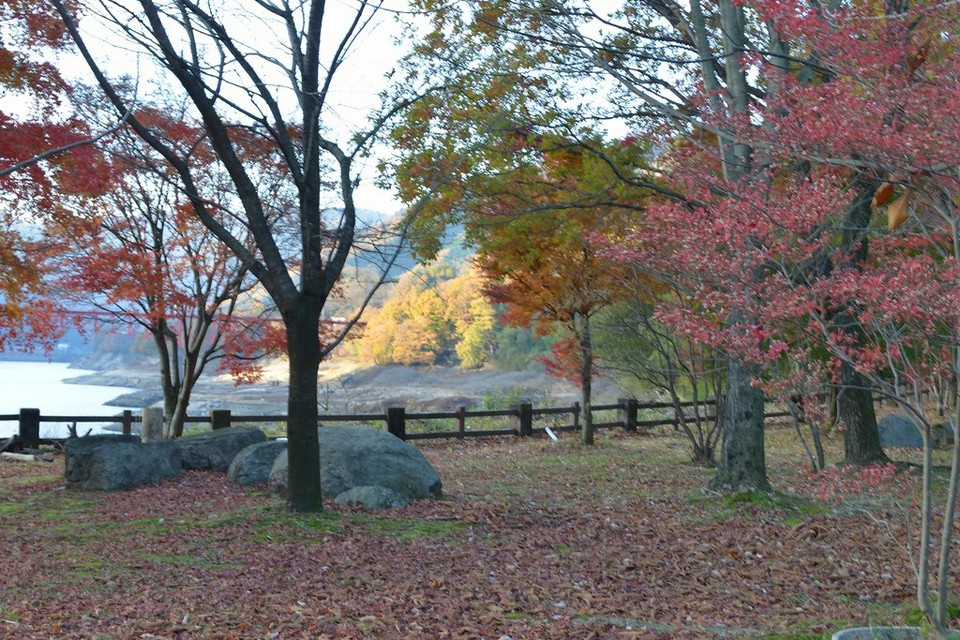
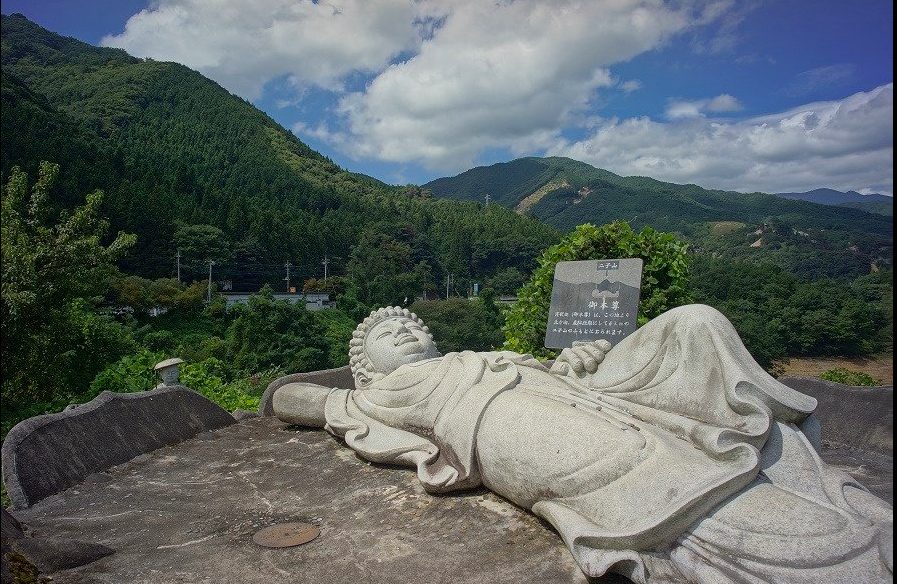
Getting there
Usually, if there is a car, people will drive to Nikko and on the way, they will come here.
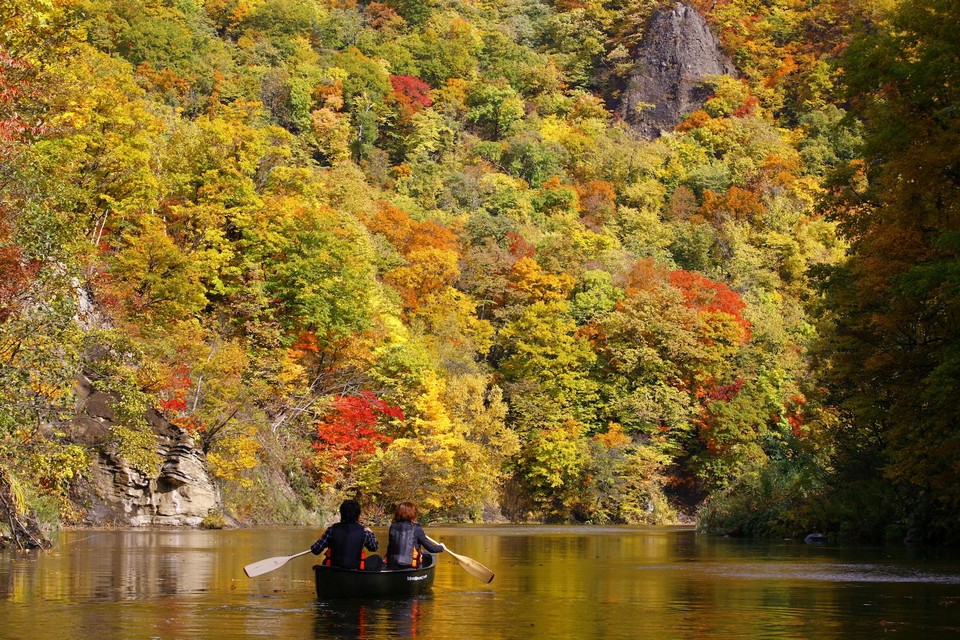
Address: 564 Azumachozama, Midori, Gunma 376-0303, Japan
Height: 140 m
Opened: 1976
Hours: 8:30AM–5PM
Phone: +81 277-97-2131
Mt. Jeans Nasu
Mt. Jeans is located in Nasu distric in Togichi prefecture, people often come here in the winter to ski, however, not only famous for its thrilling sports, Mt. Jeans is also a hot spot to “hunting” yellow and red leaves in Japan. The best time to see the yellow leaves here is from mid-October, when the maple leaves begin to change their color, beautiful that makes you want to cry. The special thing here is that instead of walking or driving, there is another way for you to experience the more authentic autumn leaves, which is to take a cable car. Imagine that you are moving by cable car from the top, both sides are rows of red leaf trees that will make you feeling like immersed yourself in the autumn leaf forest (literally). The scenery is extremely majestic, stunning, romantic, breathtaking beauty. Let’s come and experience.
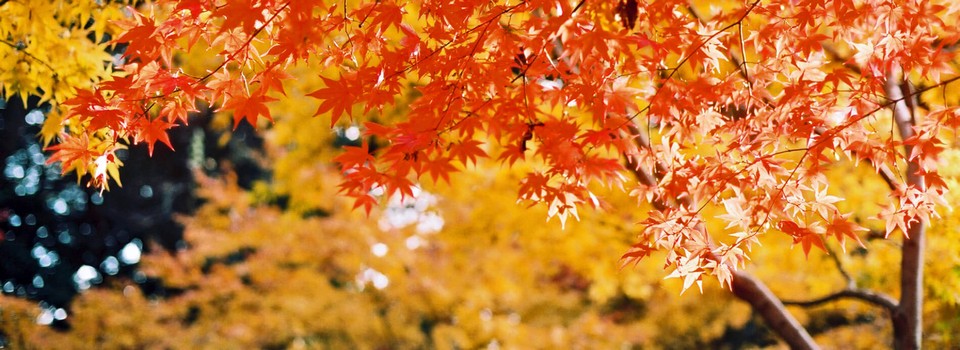
When you come to Nasu, you will meet very cute and very funny sheep, cows, goats, dogs, chickens and ducks… running and jumping on the road, looking so funny. This event called “animal go go rush” means that everyone will drift to the side of the road to watch them run at full speed around the lake, remember to pay attention to the sheep, each of them has a separate hair style, very cool.
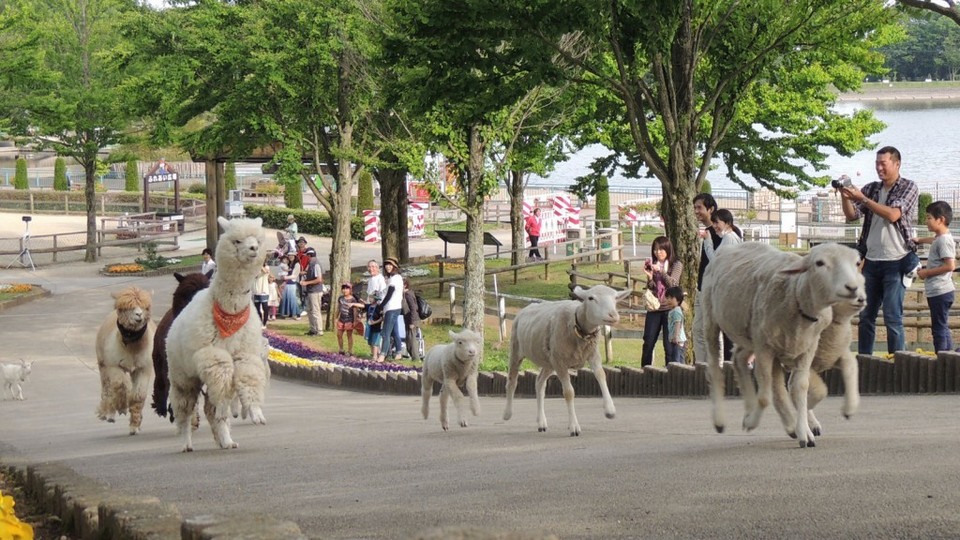
Getting there
Use JR Pass to take the Shinkansen from Tokyo to Nasu-shiobara station (The best is use JR Tokyo Wide Pass).
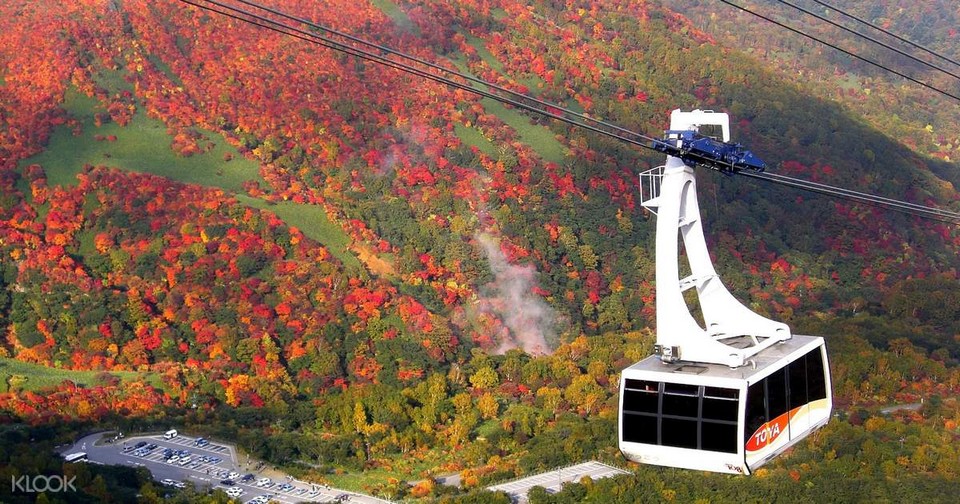
Address: Oshima, Nasu, Nasu District, Tochigi 329-3223, Japan
Hours: 8:30AM–4:30PM
Phone: +81 287-77-2300
Admission: 800 – 1.600 yen ($7.57 – $15.14) / person.
Url: http://www.mtjeans.com
Nikko

Referring to the fall that ignore the ancient city of Nikko is really an unforgivable omission !!! Nikko is an ancient citadel which was recognized by UNESCO as a world cultural heritage. Sounds as enough to know how beautiful and ancient this place is, but according to experience, some beautiful and ancient places like this also is the ideal place to seeing autumn leaves, no need to wonder.
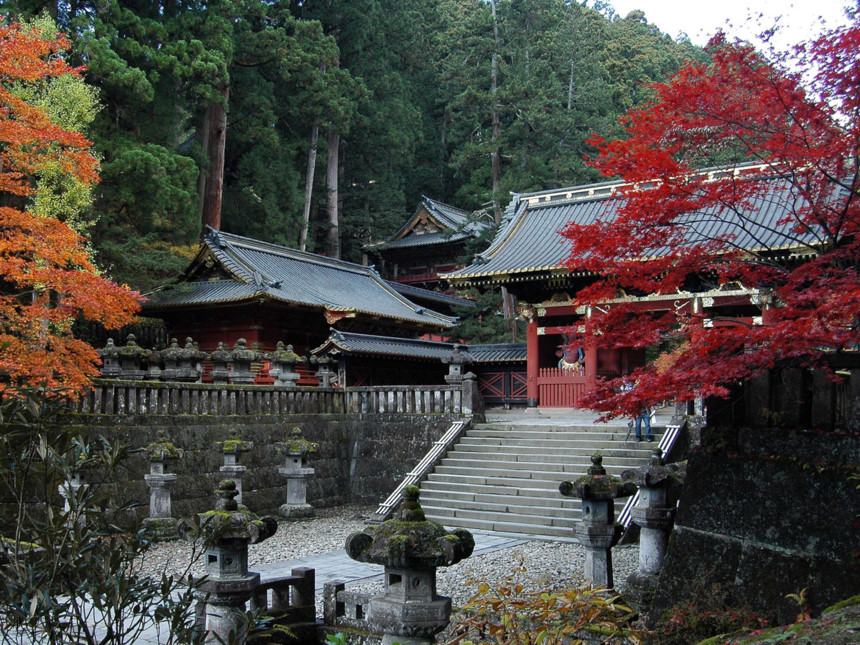
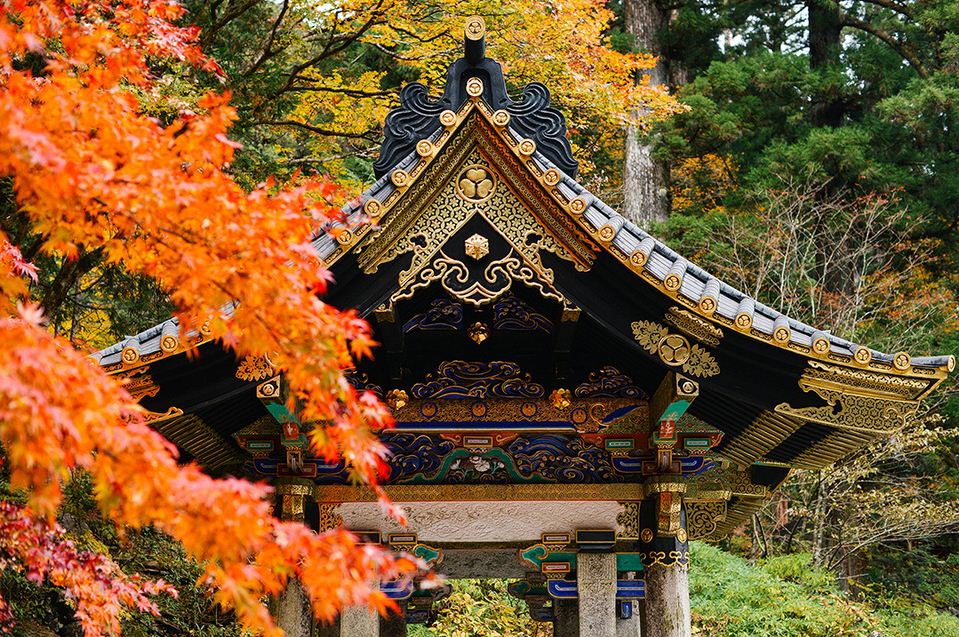
The Okunikko region around Lake Chuzenji and Yumoto Onsen is especially brilliant during the red leaves season for most of October. Head down to Nikko town where we can often see red leaves in mid-November. But the most attractive autumn scene is still the end of October.
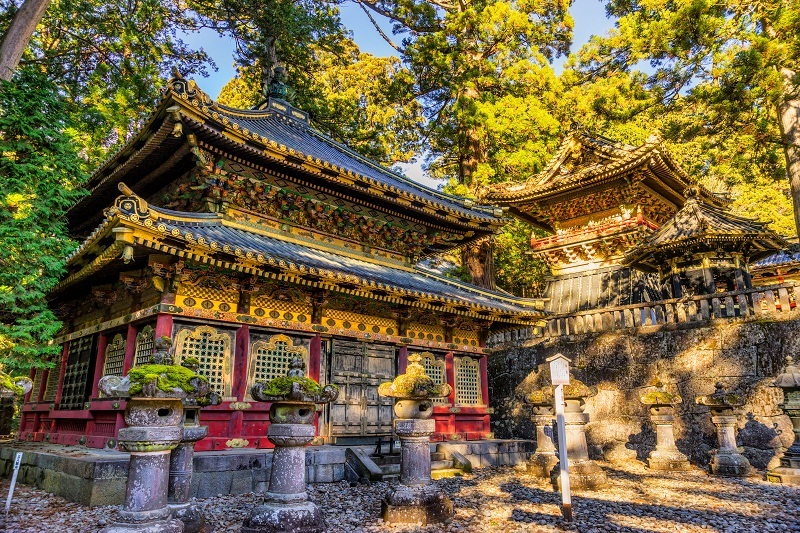

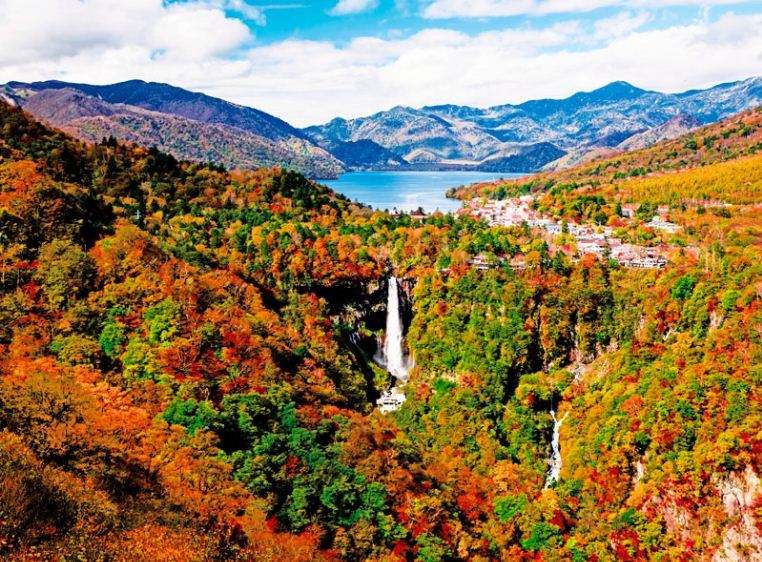
To getting to Nikko, you will have to overcome spectacular bends of Irohazaka winding road in Yilu Po, these bends are very dreadful, very disturbing for you who are usually get car sickness but these bends are very beautiful, the stunning winding road with both sides is yellow leaves, red leaves adorn on green leaf background.
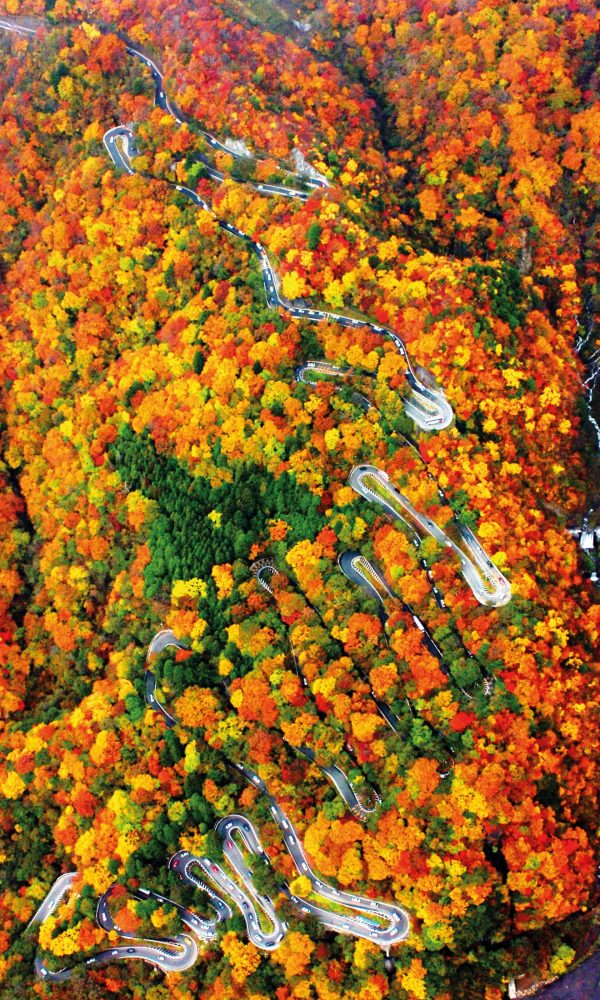
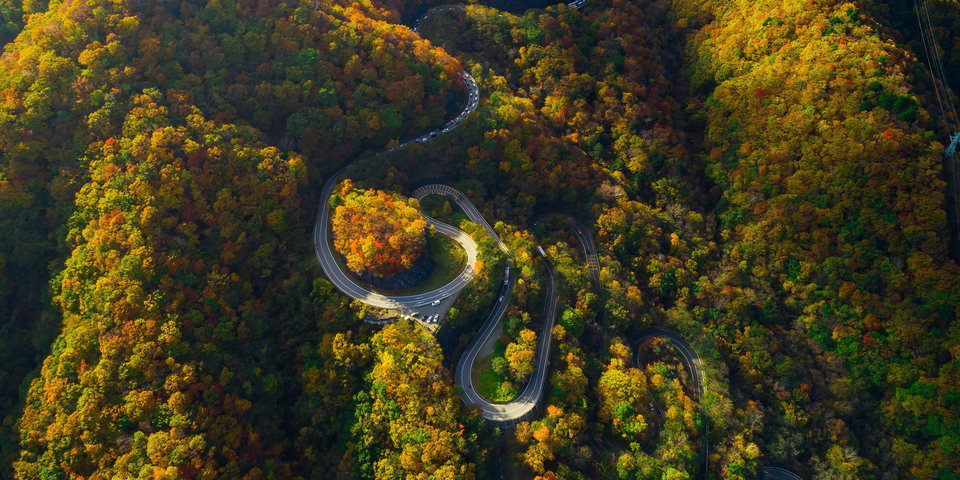
We have a super-detailed article about how to go as well as places you definitely to visit in Nikko, you can read here: Nikko travel blog — The fullest Nikko travel guide blog for a wonderful trip to Nikko, Japan.
Yatsugatake Chushin-Kogen Quasi-National Park
This park is located in Honshu region, Japan. Coming here in the fall, you will immediately be immersed in the distinctive yellow and red colors. To fully enjoy the autumn scenery, don’t forget to take the cable car up to Kiyosato Terrace, 1.900 meters hight from the sea level.
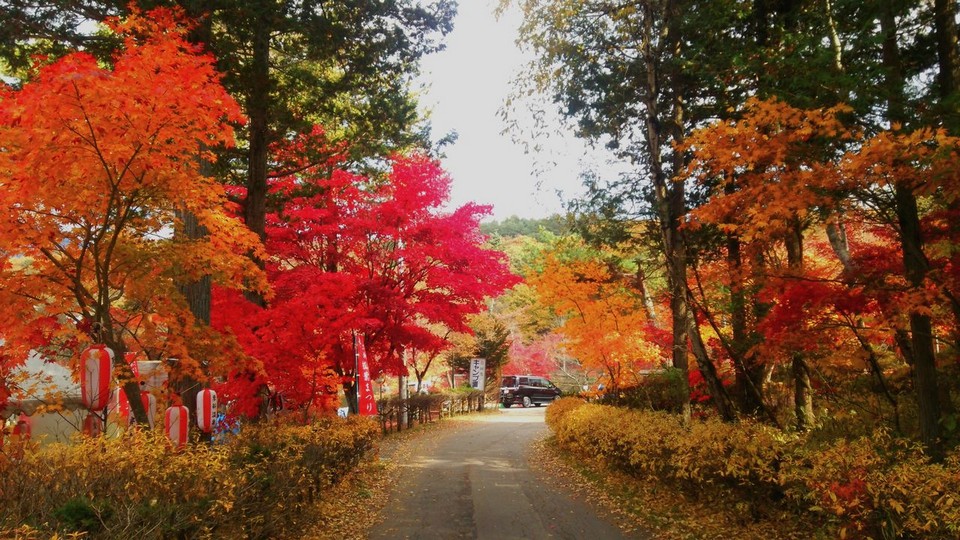
Area: 398.6 km²
Established: January 1, 1964
Nearest cities: Chino, Fujimi, Hokuto, Koumi, Matsumoto..
Hitachi Seaside Park
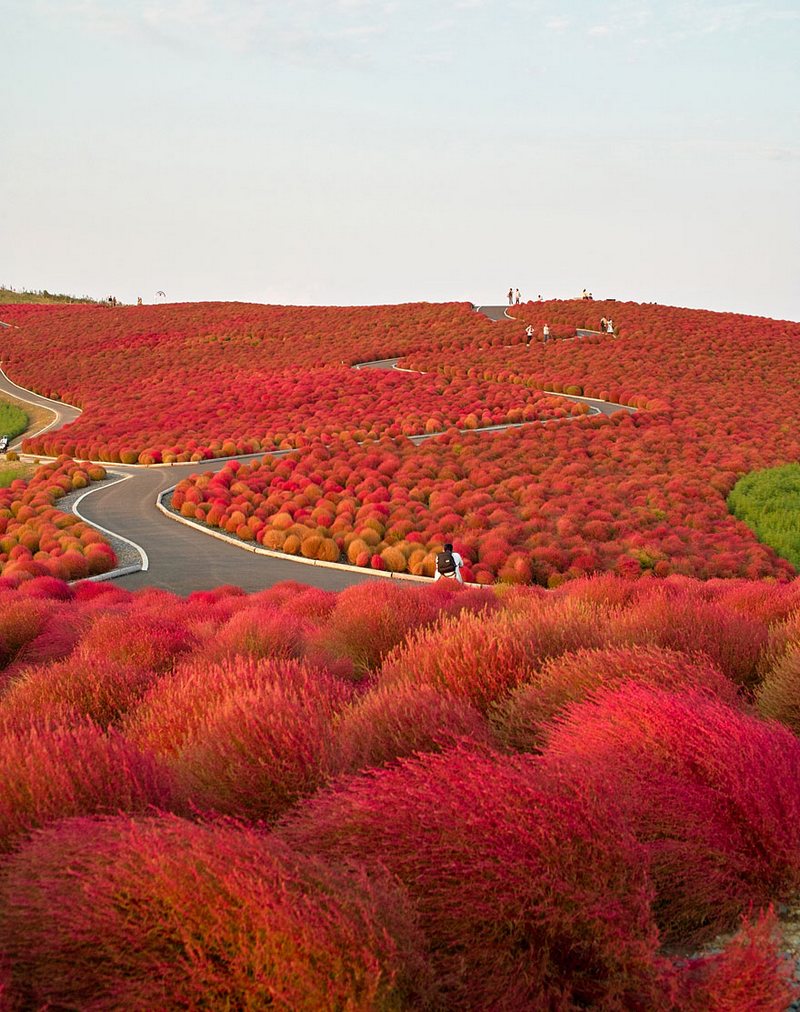
If the red maple leaf or the yellow ginkgo leaves are too familiar and you want to find something new to watch in the fall, don’t miss Hitachi Seaside Park. Hitachi Seaside Park is a park located in Ibaraki prefecture, northeast of the Kanto region, here is famous for two types of plants: Nemophila (also known as Baby blue eyes) in spring, and Kochia (Bassia scoparia) in autumn. These Kochia plants will be planted in June, until October and onwards they will begin to change color from green to red, incredibly lovely.
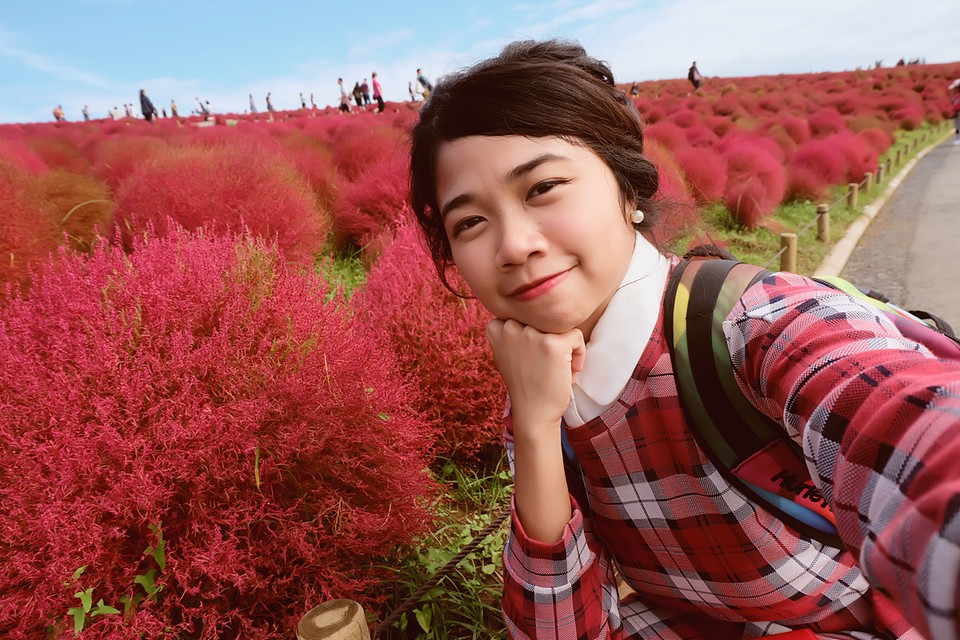
Getting there
Take the JR Joban Line from Ueno Station to Katsuta Station, then take the Ibaraki Kotsu bus towards “Hitachi Kaihin Koen” and it takes about 20 minutes to reach.
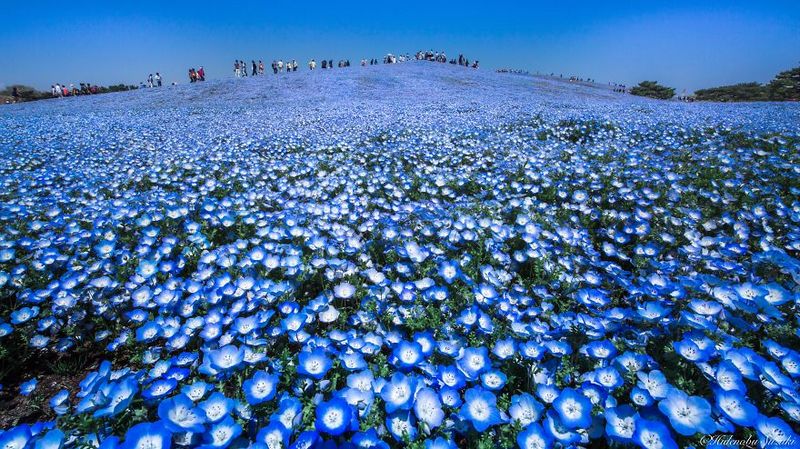
Address: 605-4 Mawatari Onuma, Hitachinaka 312-0012, Ibaraki Prefecture
Hours: 9:30AM–5PM
Admission: 450 yen ($4.26)
Url: https://hitachikaihin.jp/en.html
Lake Kawaguchiko
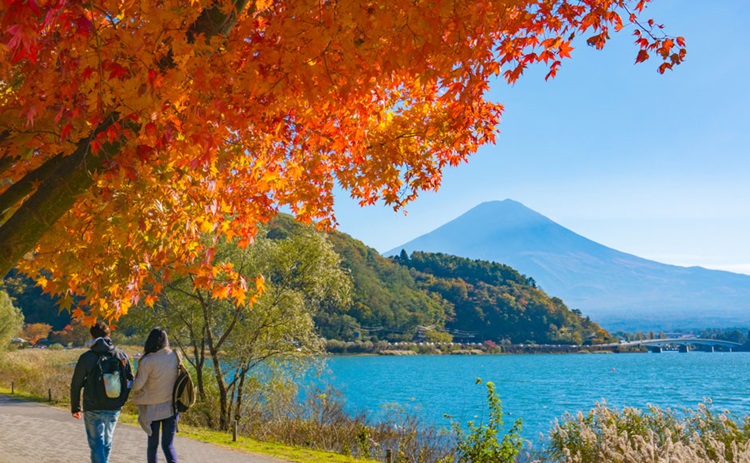
Coming to Japan, you can’t help but visiting Mount Fuji, and it is impossible to ignore Lake Kawaguchi once having visited Mount Fuji, this is the most beautiful place to see Mount Fuji all year round. The shadow of the mountain reflected down to the calm lake surface as a vast and large mirror, both poetic and majestic. Kawaguchi Lake is beautiful all year round, but the most beautiful is in the spring when cherry blossoms bloom and the fall when maple leaves turn their colors.
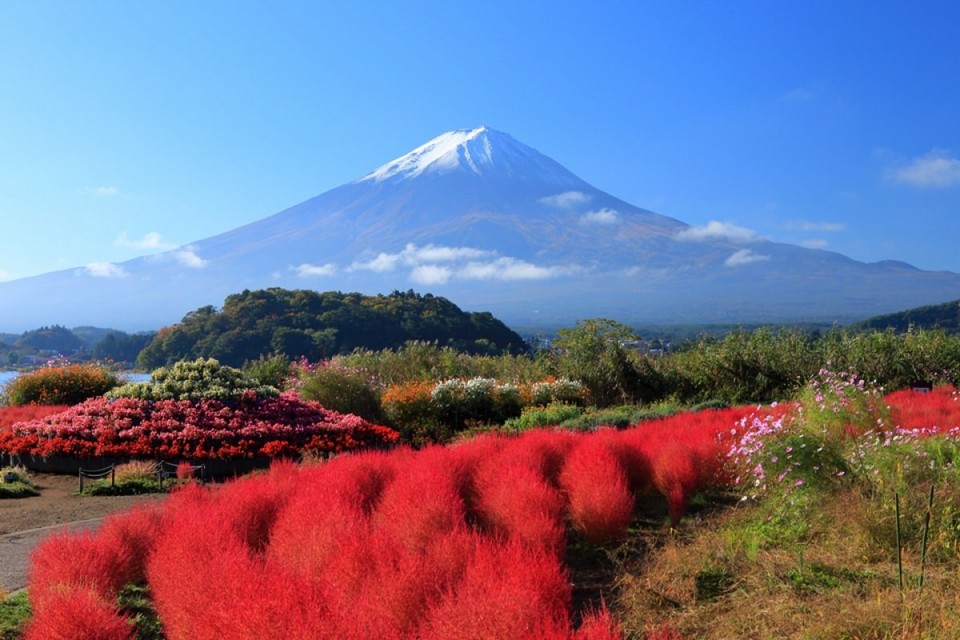
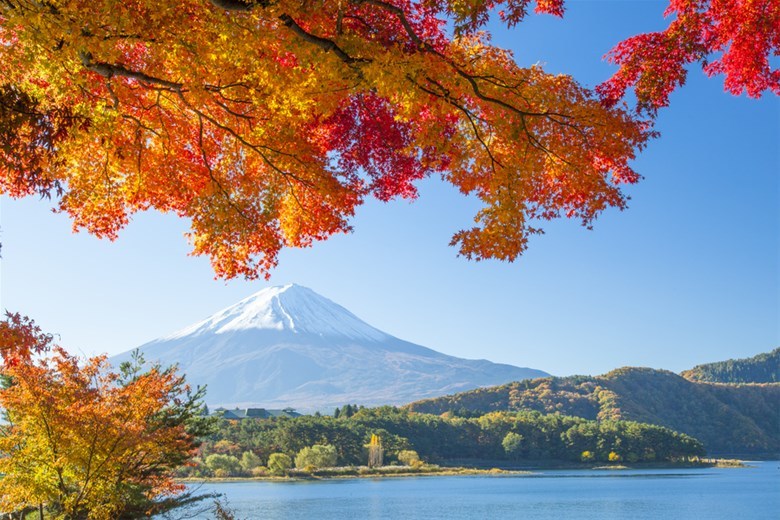
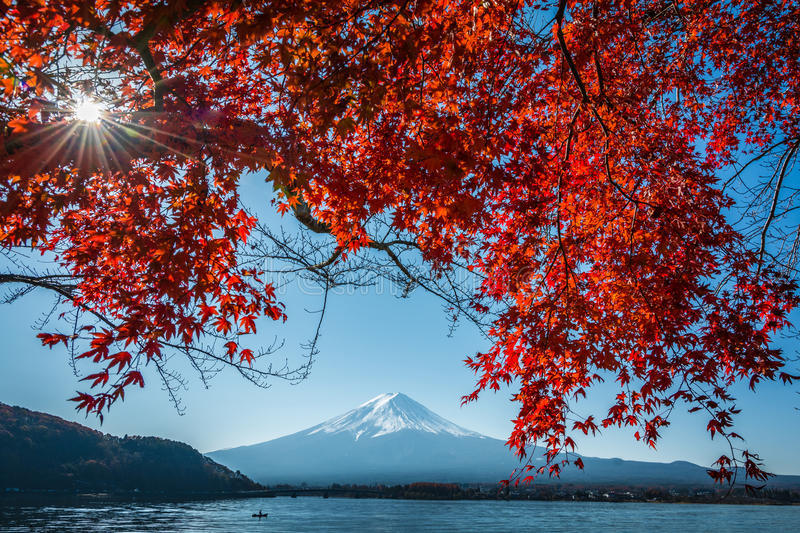
You can both walk around the walkways around the lake, breathe fresh air and see the scenery is really best. Lake Kawaguchi scenery is very beautiful, super beautiful, with a little skillful, you will easily capture the maple leafs image hang on the top of Mount Fuji as seen on Pinterest. Besides Lake Kawaguchi, around Mount Fuji there are many places to see the maple leaves, you can refer HERE, our trip is in winter so these places are mostly snow, but in the autumn yellow and red leaves will show off their brilliant colors.
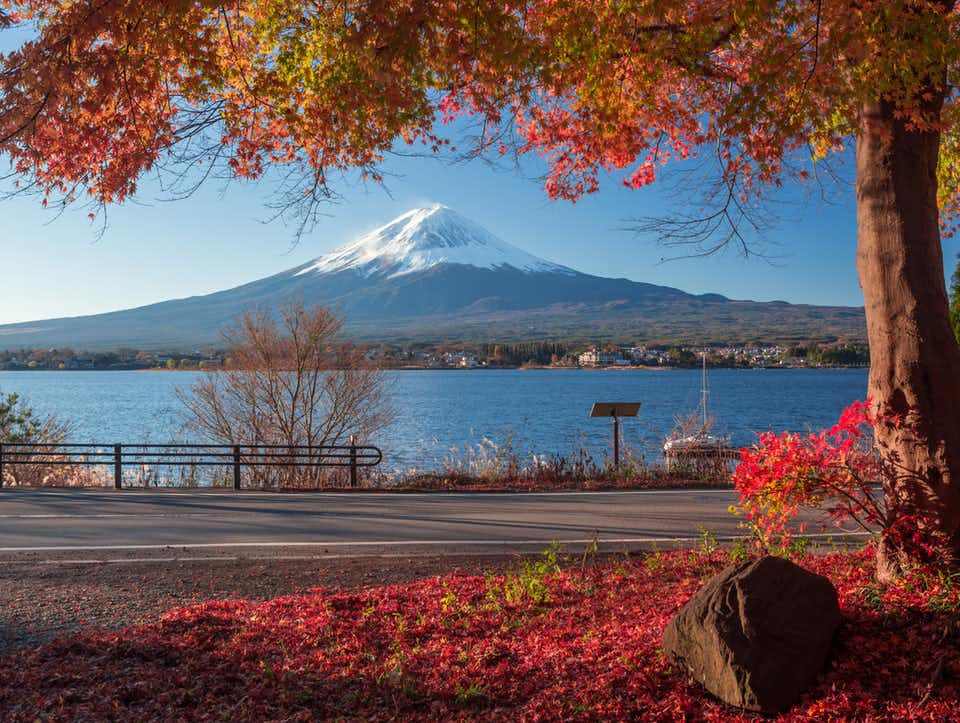
We also have a very detailed article about Kawaguchiko Lake, from how to go, places to visit, foods to try. You can read here: Kawaguchiko travel blog — The fullest Kawaguchiko travel guide & Lake Kawaguchiko itinerary 2 days for the first-timers.
Getting there
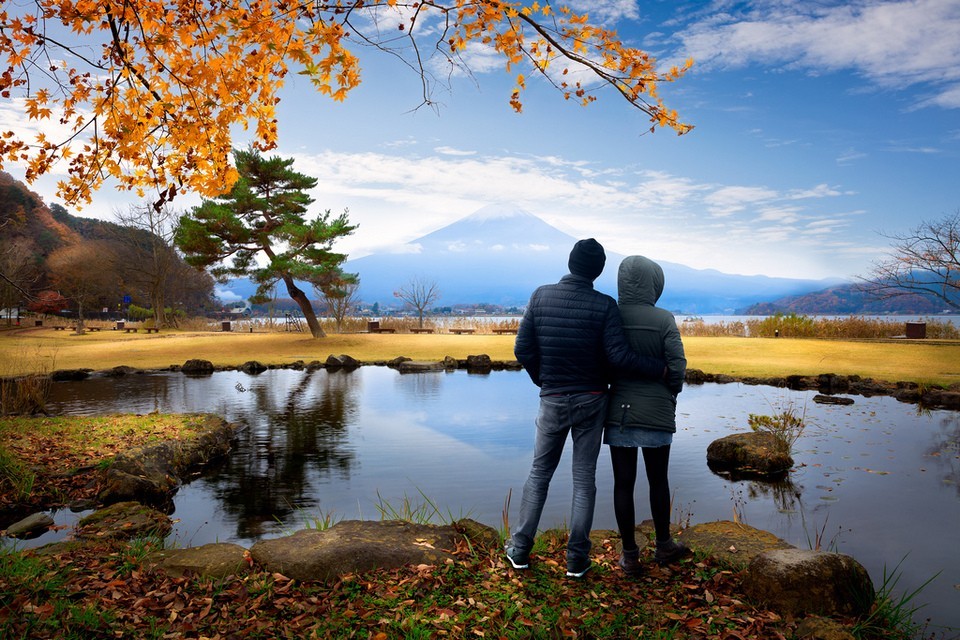
Take the JR Chuo Line from Shinjuku Station to Otsuki Station (it takes about 1 hour), you can choose to go directly with limited express train or local train (it takes about 2 hours) because the train will stop at least 1 station on the way. Arrive at Otsuki, take the Fujikyu Railway Line to Kawaguchiko Station.
Oze National Park
Oze is a national park located 100 km in the north of Tokyo. There are very peaceful walking paths through marshes of the mountainous area and around lakes and ponds. The season of red leaves starts at the end of September in the form of kusamomiji (autumn grass color), when marsh-covered grass turns into a beautiful red yellow, the best time is around mid-October.
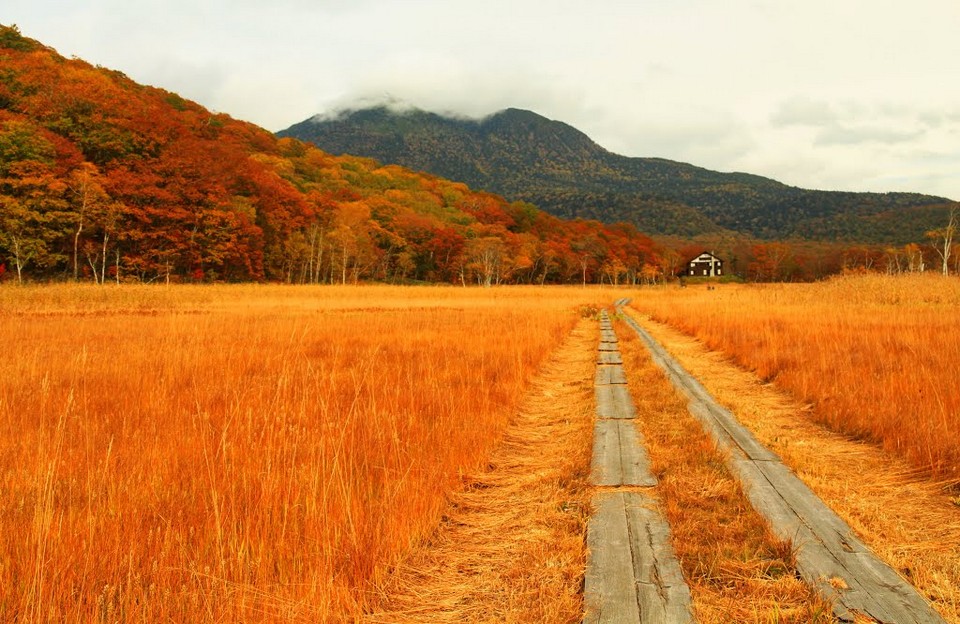
Address: Katashina, Tone District, Gunma 378-0411, Japan
Area: 372 km²
Established: August 30, 2007
Phone: +81 48-600-0516
Mount Tanigawa
Tanigawadake is a famous mountain range in Minakami, a popular outdoor destination in Gunma province, where you can fully enjoy spectacular autumn colors from hiking trails and a Tanigawadake highway. At low altitudes around Minakami, the leaves turn brilliant red from the end of October to mid-November.
Sakurayama Park
Sakurayama is the only place where we can see the combination of cherry blossoms and red leaves season, a combination of the gentle and warm spring sunshine and the color of the autumn dyed the sky here. Sakurayama is located in Gunma Prefecture, about 2 hours drive from the north of Tokyo. But there is a point to note that public transport to the park is quite bad, so it is best to hire a private car to move here.
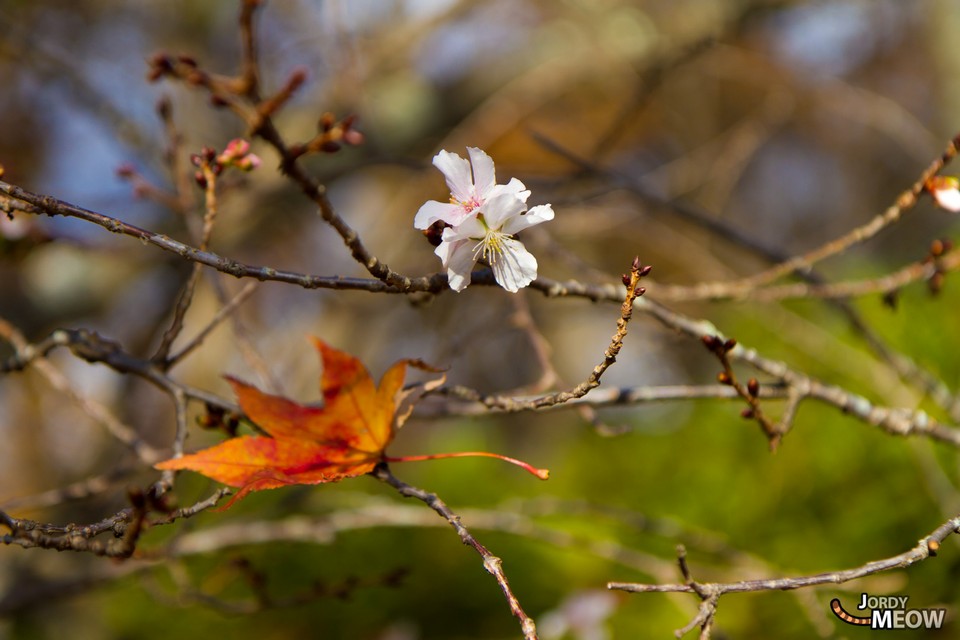
Address: 2166-1 Sanbagawa, Fujioka, Gunma 370-1405, Japan
Elevation: 591 m
Hours: Open 24 hours
Phone: +81 274-52-2214
Shosenkyo Gorge
Shosenkyo gorge is often referred to as Japan’s most beautiful canyon, it is located outside Kofu city, a special place to admire Japanese red leaf season from late October to mid-November.

Address: Takanaricho, Kofu, Yamanashi 400-1214, Japan
Hours: Open 24 hours
Phone: +81 55-237-5702
Hakone
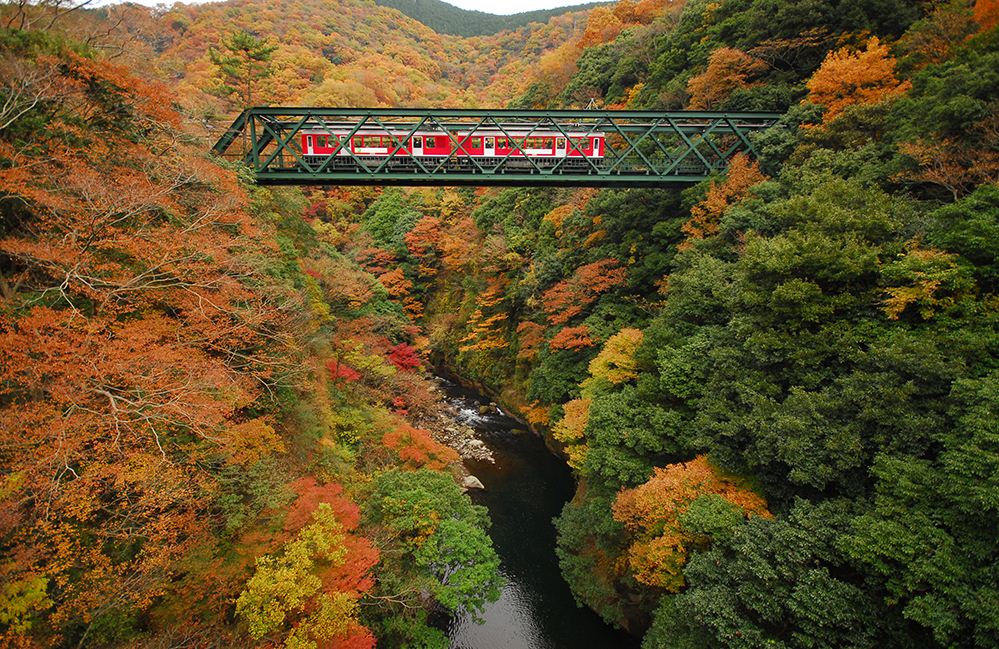
A large amount of “light” of the red leaf season that visitors will enjoy when visiting the Hakone area from early November at high altitude until the end of November at lower elevations.
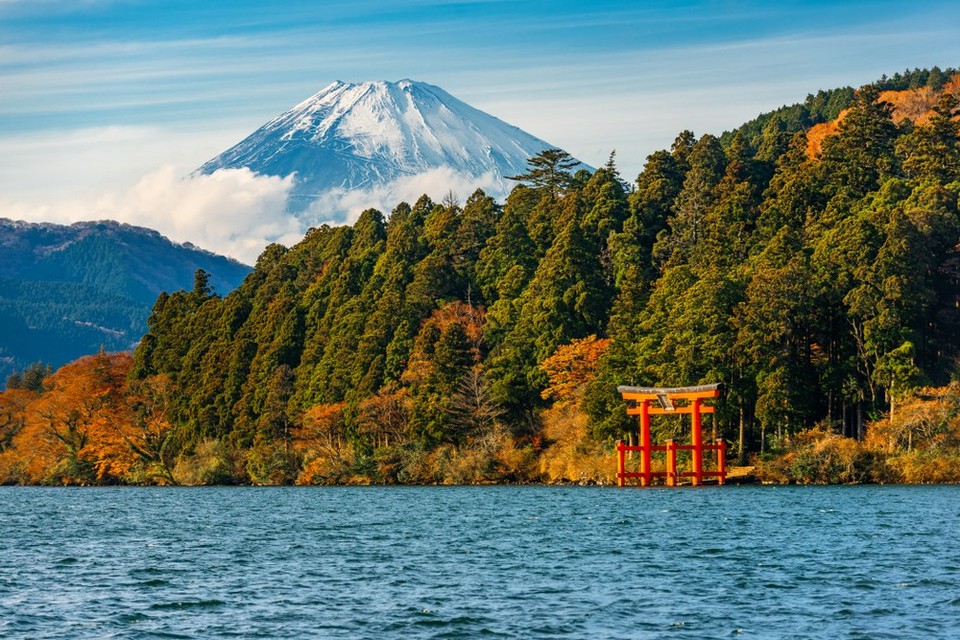
Read more: Hakone travel blog — The Hakone travel guide & how to spend 2 days in Hakone for the first-timers.
Kamakura
Due to the town’s mild climate, so the peak of the red leaf season in some of Kamakura’s temples and shrines ranges from late October to mid-December.
Kansai Region
